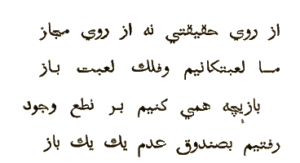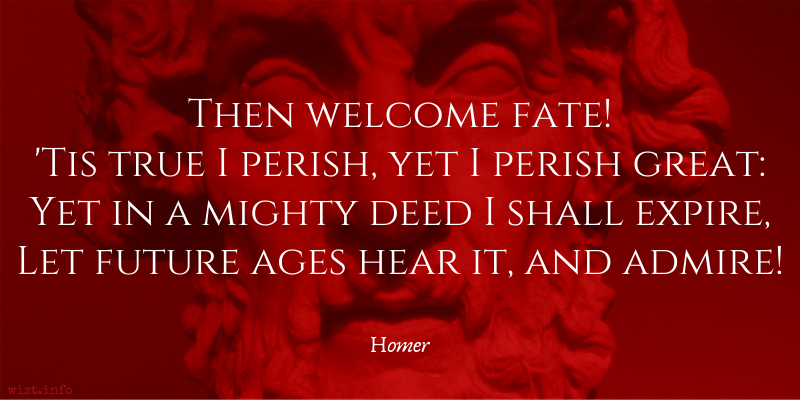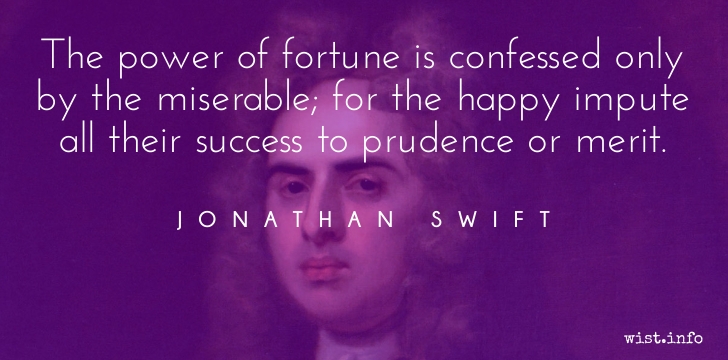Thence come the maidens
mighty in wisdom,
Three from the dwelling
down ‘neath the tree;
Urth is one named,
Verthandi the next, —
On the wood they scored, —
and Skuld the third.
Laws they made there,
and life allotted
To the sons of men,
and set their fates.[Þaðan koma meyjar,
margs vitandi,
þrjár, ór þeim sæ
er und þolli stendr;
Urð hétu eina,
aðra Verðandi —
skáru á skíði —
Skuld ina þriðju;
þær lǫg lǫgðu,
þær líf kuru
alda bǫrnum,
ørlǫg seggja.]Poetic Edda (800-1100) Old Norse anonymous collection of poems
Völuspá [Prophecy of the Völva; Prophecy of the Seeress], st. 20 (AD 961) [tr. Bellows (1936)]
(Source)
Narrated by Heiðr.
Urd, Verdandi, and Skuld are the Norns (Nornir), their names interpreted as "the Past, the Present, and the Future" (or "That which Has Happened / Fate," "That Which Is Happening," or "That Which Shall Happen." These Fates are analogous to the Roman Parcae and Greek Moirai. See Turner, Bellows, Pettit notes.
(Source (Old Norse)). Other translations:Then came the much-knowing virgins;
Three, from the sea
Which extend over the oak
One is called Urd (necessity);
Another Vedande (the possible);
The third Skulld.
They engrave on the shield;
They appoint laws, they chuse laws
For the sons of the ages;
The fates of mankind.
[tr. Turner (1836); st. 18]Thence come maidens, much knowing, three from the hall, which under that tree stands; Urd hight the one, the second Verdandi, -- on a tablet they graved -- Skuld the third. Laws they established, life allotted to the sons of men; destinies pronounced.
[tr. Thorpe (1866)]From there come three girls, knowing a great deal,
from the lake which stands under the tree;
Fated one is called, Becoming another --
they carved on wooden slips -- Must-be the third;
they set down laws, the chose lives,
for the sons of men the fates of men.
[tr. Larrington (2014)]From there come maidens, knowing many things,
three [maidens], from the sea which stands under the tree;
one was called Urðr, the second Verðandi,
— they inscribed on a stick — the third Skuld;
they laid down laws, they chose lives
for the sons of men, the fates of men.
[tr. Pettit (2023)]
Quotations about:
fate
Note not all quotations have been tagged, so Search may find additional quotes on this topic.
KING RICHARD: For God’s sake, let us sit upon the ground
And tell sad stories of the death of kings —
How some have been deposed, some slain in war,
Some haunted by the ghosts they have deposed,
Some poisoned by their wives, some sleeping killed,
All murdered.William Shakespeare (1564-1616) English dramatist and poet
Richard II, Act 3, sc. 2, l. 160ff (3.2.160-165) (1595)
(Source)
CHORUS: Many are the forms of what is unknown.
Much that the gods achieve is surprise.
What we look for does not come to pass;
God finds a way for what none foresaw.
Such was the end of this story.[ΧΟΡΟΣ: πολλαὶ μορφαὶ τῶν δαιμονίων,
πολλὰ δ᾽ ἀέλπτως κραίνουσι θεοί:
καὶ τὰ δοκηθέντ᾽ οὐκ ἐτελέσθη,
τῶν δ᾽ ἀδοκήτων πόρον ηὗρε θεός.
τοιόνδ᾽ ἀπέβη τόδε πρᾶγμα.]Euripides (485?-406? BC) Greek tragic dramatist
Helen [Ἑλένη], l. 1688ff, final lines (412 BC) [tr. Lattimore (1956)]
(Source)
See here for more discussion about Euripides' "standard" choral coda.
(Source (Greek)). Other translations:With various hands the gods dispense our fates;
Now show'ring various blessings, which our hopes
Dared not aspire to; now controuling ills
We deem'd inevitable: thus the god
To these hath giv'n an end exceeding thought.
Such is the fortune of this happy day.
[tr. Potter (1783)]A thousand shapes our varying fates assume
The gods perform what least expect,
And oft the things for which we fondly hoped
Come not to pass; but Heaven still finds a clue
To guide our steps through live's perplexing maze,
And thus doth this important business end.
[tr. Wodhull (1809)]Many are the forms of things connected with the deities, and many things the Gods perform contrary to our expectations. But those things which we looked for are not accomplished; but the God hath brought to pass things not looked for. Thus has this matter turned out.
[tr. Buckley (1850)]Many are the forms of divinities, and many things the gods bring to pass unhoped for. And what was expected has not been fulfilled; for what was not expected, a god finds a way. Such was the result of this action.
[tr. Coleridge (1891)]Many are the forms the heavenly will assumes; and many a thing God brings to pass contrary to expectation: that which was looked for is not accomplished, while Heaven finds out a way for what we never hoped; e'en such has been the issue here.
[tr. Coleridge (alt.)]O the works of the Gods -- in manifold wise they reveal them:
Manifold things unhoped for the Gods to accomplishment bring.
And the things that we looked for, the Gods deign not to fulfil them;
And the paths undiscerned of our eyes, the Gods unseal them.
So fell this marvelous thing.
[tr. Way (Loeb) (1912)]In diverse ways the gods fulfil
The secret purpose of their will.
We say, this thing shall surely be,
And lo! it cometh not. We say
This is denied by destiny;
God findeth out a way.
So hath this story's strange conclusion shown,
The secrets of the gods rest still unknown.
[tr. Sheppard (1925)]Many indeed the shapes and changes are
of heavenly beings. Many things the gods
achieve beyond our judgment. What we thought
is not confirmed, and what we thought not god
contrives. And so it happens in this story.
[tr. Warner (1951)]The gods reveal themselves in many forms,
Bring many matters to surprising ends.
The things we thought would happen do not happen;
The unexpected God makes possible:
And this is what has happened here to-day.
[tr. Vellacott (1954)]Heaven has many faces.
The gods bring to pass many things we never hoped for,
While what we wait to see happen ... never does.
And for what we never even dreamed could be,
God finds a way.
And so it happened here today.
[tr. Meagher (1986)]Many are the forms the plans of the gods take and many the things they accomplish beyond men's hopes. What men expect does not happen; for the unexpected heaven finds a way. And so it has turned out here today.
[tr. Davie (2002)]Many are the forms the heavenly will assumes; and many a thing God brings to pass contrary to expectation: that which was looked for is not accomplished, while Heaven finds out a way for what we never hoped; e'en such as been the issue here.
[tr. Athenian Society (2006)]The deeds of the gods take many forms.
And gods often perform deeds even beyond our hopes.
Our wishes might not be granted but the gods will find ways of achieving what we never thought was achievable.
Such was the path of our story.
[tr. Theodoridis (2011)]Divinities take many shapes;
the gods accomplish things surpassing hope.
Expected things don’t come to pass;
and God finds ways for unexpected things.
And that’s how this affair turned out.
[tr. Ambrose et al. (2018)]Many are the forms of divinities, and many things the gods bring to pass unhoped for. And what was expected has not reached a telos; for what was not expected, a god finds a way. Such was the result of this action.
[tr. Coleridge / Helen Heroization Team]
People love stories, I love them, but stories are like gods, they care little for the human beings in their care.
Lev Grossman (b. 1969) American novelist and journalist
The Bright Sword, Book 4 [Guinevere] (2024)
(Source)
CHORUS:His Second Part,
Where Death cuts off the progress of his pomp
And murderous Fates throw all his triumphs down.
The world’s a theatre, the earth a stage,
Which God and Nature do with actors fill.
Kings have their entrance in due equipage,
And some there parts play well, and others ill.The best no better are (in this theater),
Where every humor’s fitted in his kinde;
This a true subiect acts, and that a traytor,
The first applauded, and the last confin’d;This plays an honest man, and that a knave,
A gentle person this, and he a clowne,
One man is ragged, and another brave:
All men have parts, and each man acts his own.Thomas Heywood (1570s-1641) English playwright, actor, author
Apology for Actors, “The Author to his Booke” (1612)
(Source)
See Shakespeare (1599).
The stars have not dealt me the worst they could do:
My pleasures are plenty, my troubles are two.
But oh, my two troubles they reave me of rest,
The brains in my head and the heart in my breast.A. E. Housman (1859-1936) English scholar and poet [Alfred Edward Housman]
“Additional Poems,” No. 17 (pub. 1937)
(Source)
He had a tremendous propensity for getting lost when driving. This was largely because of his “Zen” method of navigation, which was simply to find any car that looked as if it knew where it was going and follow it. The results were more often surprising than successful, but he felt it was worth it for the sake of the few occasions when it was both.
Douglas Adams (1952-2001) English author, humourist, screenwriter
Dirk Gently, No. 2, The Long Dark Tea-Time of the Soul, ch. 4 (1988)
(Source)
Dirk describes this again later, in ch. 13:My own strategy is to find a car, or the nearest equivalent, which looks as if it knows where it's going and follow it. I rarely end up where I was intending to go, but often I end up somewhere I needed to be.
And again at the end of ch. 13:My methods of navigation have their advantage. I may not have gone where I intended to go, but I think I have ended up where I needed to be.
HENRIETTE: Heaven, that orders all with sovereign power,
Forms us at birth for different uses, sister.
Not every spirit, if it would, can furnish
The stuff of which philosophers are made.[Le ciel, dont nous voyons que l’ordre est tout-puissant,
Pour différents emplois nous fabrique en naissant ;
Et tout esprit n’est pas composé d’une étoffe
Qui se trouve taillée à faire un philosophe.]Molière (1622-1673) French playwright, actor [stage name for Jean-Baptiste Poquelin]
Les Femmes Savantes [The Learned Ladies], Act 1, sc. 1, (1692) [tr. Page (1908)]
(Source)
(Source (French)). Other translations:Heav'n, whose Order we perceive to be almighty, forms us in our Birth for different Offices, and every Mind is not compos'd of Materials to fit it for making a Philosopher.
[tr. Clitandre (1739)]Heaven, whose commands we see to be all-powerful, fits us at our birth for different functions; and every mind is not composed of the stuff cut out to make a philosopher.
[tr. Van Laun (1876)]Heaven, whose will is supreme, forms us at our birth to fill different spheres; and it is not every mind which is composed of materials fit to make a philosopher.
[tr. Wall (1879), The Learned Women]Heaven, whose order we own to be almighty, forms us at birth for different occupations, and every mind is not composed of the stuff to make a philosopher.
[tr. Matthew (1890), The Blue-Stockings]But Heaven, whose laws we know to be all-powerful, formed us at birth for different vocations. All minds are not of the same stuff, cut out to make philosophers.
[tr. Wormeley (1895), The Female Pedants]Heaven, whose decree is omnipotent, forms us at our birth for different functions; not every mind is made of the material from which a philosopher is made.
[tr. Waller (1903)]Heaven, whose order of course is all-powerful,
Creates us at birth for different functions;
And every mind is not composed of the stuff
That’s right for fashioning philosophers.
[tr. Marks (2018)]
O Fortune, cruellest of heavenly powers,
Why make such game of this poor life of ours?[Heu, Fortuna, quis est crudelior in nos
Te Deus? Ut semper gaudes illudere rebus
Humanis!]Horace (65-8 BC) Roman poet, satirist, soldier, politician [Quintus Horatius Flaccus]
Satires [Saturae, Sermones], Book 2, # 8, “Ut Nasidieni,” l. 61ff (2.8.61-63) (30 BC) [tr. Conington (1874)]
(Source)
When "disaster" befalls the dinner party of Nasidienus (Rufus), Nomentanus tries to snap him out of a funk by philosophically / melodramatically bemoaning how Fortune treats humanity.
(Source (Latin)). Alternate translations:Some mourne and blame their sorie fate, why Fortune shoulde be suche,
That they suche blouddes shoulde nothinge have, and others overmuche.
[tr. Drant (1567)]Fortune our Foe, thou art a scurvy Puss!
Ah what a cruel Vixen th' art! ah how
Do'st thou delight to mock us here below!
[tr. I. W. Esq.; ed. Brome (1666)]Unlucky Chance what God is so unkind,
Thou lov'st to break the measures Man design'd.
[tr. Creech (1684)]Fortune, thou cruelest of powers divine,
To joke poor mortals is a joke of thine.
[tr. Francis (1747)]Ah cruel Fortune, foe to human bliss!
Invidious power, it seems thy sole delight
All our enjoyments in the bud to blight.
[tr. Howes (1845)]Alas! O fortune, what god is more cruel to us than thou? How dost thou always take pleasure in sporting with human affairs!
[tr. Smart/Buckley (1853)]O Fortune, what divinity so cruel against us as thou? What joy to thee 'tis ever to frustrate the plans of men!
[tr. Millington (1870)]Ah Fortune, what divine power is more cruel towards us than thou! How thou delightest ever to make sport of human affairs!
[tr. Wickham (1903)]Ah, Fortune, what god is more cruel toward us than thou! How thou dost ever delight to make sport of the life of man!
[tr. Fairclough (Loeb) (1926)]Oh, Fortune, what god
Is more cruel to us than you are! You always have fun
Making fun of mankind!
[tr. Palmer Bovie (1959)]Ah, Fortune! What god more cruel to us than you?
You always like to play around with mankind’s hopes!
[tr. Fuchs (1977)]Ah, Fortune! Is there a crueler god?
How you love to toy with us, playing with our lives!
[tr. Raffel (1983)]What god,
O Fortune, is more cruel toward us than Thou?
How you rejoice in upsetting man’s hopes!
[tr. Alexander (1999)]Fortune, most cruel of all the gods, what
would you do for laughs without us humans?
[tr. Matthews (2002)]Shame on you Lady Luck!
No other god is so cruel. What pleasure you get from mocking
the plans of men!
[tr. Rudd (2005 ed.)]O Fortune, what deity treats us more
Cruelly than you? How you always delight in mocking
Human affairs!
[tr. Kline (2015)]
MENELAUS:But so it has to be.
For the saying is not mine, but it was wisely said,
that nothing has more strength than dire necessity.[ΜΕΝΕΛΈΩΣ:ἀλλ᾽ ἀναγκαίως ἔχει.
λόγος γάρ ἐστιν οὐκ ἐμός, σοφὸν δ᾽ ἔπος,
δεινῆς ἀνάγκης οὐδὲν ἰσχύειν πλέον.]Euripides (485?-406? BC) Greek tragic dramatist
Helen [Ἑλένη], l. 512ff (412 BC) [tr. Lattimore (1956)]
(Source)
(Source (Greek)). Other translations:But hard necessity constrains: not mine
This saying, but the sentence of the sage,
Nothing is stronger than Necessity.
[tr. Potter (1783), l. 560ff]But thus hath Fate ordained.
Nor is it my assertion, but a maxim
Among the wise established, that there's nought
More powerful than the dread behests of Fate.
[tr. Wodhull (1809)]But it needs must be. For it is not my saying, but the saying of wise men: naught has a greater power than terrible necessity.
[tr. Buckley (1850)]But it is necessary. The saying is not mine, but it is a wise word: nothing is stronger than dreadful necessity.
[tr. Coleridge (1891)]Yet it needs must be.
Not mine the saying is, but wisdom's saw --
"Stronger is nought than dread Necessity."
[tr. Way (Loeb) (1912)]There's no other way.
"Needs must," the proverb says; and so I say
"Needs must," and my necessities obey.
[tr. Sheppard (1925)]But necessity compels.
It is not my saying, but it is a weighty one,
that nothing has more strength than hard necessity.
[tr. Warner (1951)]Well, I must. Nothing is stronger than necessity -- I did not invent that proverb, but it’s true none the less, and very well known.
[tr. Vellacott (1954)]But this is what things have come to.
He spoke wisely -- it wasn't I -- who said:
there is no arm strong enough to bend back dread necessity.
[tr. Meagher (1986)]But there is no alternative. It is not my own saying, but a wise man's none the less, that nothing is as strong as stern necessity.
[tr. Davie (2002)]Still needs must I. Yea, this is no saying of mine, but a word of wisdom, "Naught in might exceedeth dread necessity."
[tr. Athenian Society (2006)]But -- "beggars can't be choosers". Hardly an original proverb,
But wise words indeed.
[tr. A. Wilson (2007)]Still, I must bow to necessity. A wise man, not I, once said that there’s no mightier force than dire necessity.
[tr. Theodoridis (2011)]Still, ‘necessity offers us no choice’.
I didn’t make that up, but it sounds smart.
[Ambrose et al. (2018)]But it is necessary. The saying is not mine, but it is a wise [sophon] word [epos]: nothing is stronger than dreadful [deinē] necessity.
[tr. Coleridge / Helen Heroization Team]
CHORUS: Come away, dear ones, come away.
To the camp, to the place of the ships, to the sea,
To the strange new life of slavery,
For all are the slaves of Destiny.[ΧΟΡΟΣ: ἴτε πρὸς λιμένας σκηνάς τε, φίλαι,
τῶν δεσποσύνων πειρασόμεναι
μόχθων: στερρὰ γὰρ ἀνάγκη.]Euripides (485?-406? BC) Greek tragic dramatist
Hecuba [Hekabe; Ἑκάβη], l. 1293ff (c. 424 BC) [tr. Sheppard (1924)]
(Source)
Closing lines, as the Trojan women captives (including Hecuba) are taken back to Greece.
(Source (Greek)). Alternate translations:To the haven go,
And to the tents, my friends, t'endure the toils
Our lords impose: for thus harsh fate enjoins.
[tr. Wodhull (1809)]Come, my friends, to the harbor, and the tents, to undergo the tasks imposed by our masters. For necessity is relentless.
[tr. Edwards (1826)]To the tents, O friends, to the haven fare;
The yoke of thraldom our necks must bear.
Fate knows not pity, fate will not spare.
[tr. Way (Loeb) (1894)]Away to the harbour and the tents, my friends, to prove the toils of slavery! for such is fate's relentless hest.
[tr. Coleridge (1938)]File to the tents,
file to the harbor.
There we embark
on life as slaves.
Necessity is harsh.
Fate has no reprieve.
[tr. Arrowsmith (1958)]Go to the shoreline and our masters' tents. Find out from them what work we're forced to do. We've got no choice. No choice at all. We're slaves.
[tr. Harrison (2005)]Go, my friends! Go to the ports and to the tents, my friends! Go and taste the hardship of slavery!
[tr. Theodoridis (2007)]-- To the harbor now. -- To the tents.
-- It is time to embark. -- It is time to board
our new lives as slaves. -- But the taste
is bitter. -- Necessity is hard.
[tr. Karden/Street (2011)]
So live, my boys, as brave men; and if fortune is adverse, front its blows with brave hearts.
[Quocirca vivite fortes
fortiaque adversis opponite pectora rebus.]Horace (65-8 BC) Roman poet, satirist, soldier, politician [Quintus Horatius Flaccus]
Satires [Saturae, Sermones], Book 2, # 2, “Quae virtus et quanta,” l. 135ff (2.2.135-136) (30 BC) [tr. Wickham (1903)]
(Source)
Often misattributed to Cicero.
(Source (Latin)). Alternate translations:Live bravely then,
And in all troubles quit your selves like men.
[tr. A. B.; ed. Brome (1666)]Then live Resolv'd, my Sons, refuse to yield,
And when Fates press make Constancy your shield.
[tr. Creech (1684)]Then be not with your present lot deprest,
And meet the future with undaunted breast
[tr. Francis (1747)]Bear up then, Boys! and stem the adverse tide,
Patience your stay and providence your guide!
[tr. Howes (1845)]Wherefore, live undaunted; and oppose gallant breasts against the strokes of adversity.
[tr. Smart/Buckley (1853)]So, then, live bravely on, and bravely stem adversity's opposing stream.
[tr. Millington (1870)]Then live like men of courage, and oppose
Stout hearts to this and each ill wind that blows.
[tr. Conington (1874)]Live, then, as brave men, and with brave hearts confront the strokes of fate.
[tr. Fairclough (Loeb) (1926)]SO LIVE BRAVE LIVES: STAND UP TO THE BLOWS OF FATE!
[tr. Palmer Bovie (1959)]So then, live, live and endure.
Meet life's difficulties with strong, enduring hearts.
[tr. Fuchs (1977)]Good reason whereby you should be
happy and confront adversity
with an undaunted soul.
[tr. Alexander (1999)]Live as brave men,
then, standing chest to chest with changeful fate.
[tr. Matthews (2002)]So be brave
and bravely throw out your chest to meet the force of fate!
[tr. Rudd (2005 ed.)]So live bravely, as men
With brave hearts do, and confront the vagaries of fate.
[tr. Kline (2015)]
POLYMESTOR:Shit.
Nothing is credible, not a good reputation
Nor that one who is lucky will not do badly in the end.
The gods churn these waters up back and forth
Mixing in confusion so that we worship them
In our ignorance.[ΠΟΛΥΜΉΣΤΩΡ:φεῦ·
οὐκ ἔστιν οὐδὲν πιστόν, οὔτ᾿ εὐδοξία
οὔτ᾿ αὖ καλῶς πράσσοντα μὴ πράξειν κακῶς.
φύρουσι δ᾿ αὐτὰ θεοὶ πάλιν τε καὶ πρόσω
ταραγμὸν ἐντιθέντες, ὡς ἀγνωσίᾳ
σέβωμεν αὐτούς.]Euripides (485?-406? BC) Greek tragic dramatist
Hecuba [Hekabe; Ἑκάβη], l. 956ff (c. 424 BC) [tr. @sentantiq (2020)]
(Source)
King Polymestor's entrance, lamenting to Hecuba that her city, Troy, has fallen, and her daughter as been sacrificed by the conquering Greeks. The lament is ironic, as he himself (secretly, he believes) killed Polydorus, Hecuba and Priam's youngest son, in order to steal the Trojan treasure left for his inheritance. This play is all about Hecuba's bloody (and justified?) revenge upon him and his children for this betrayal.
(Source (Greek)). Alternate translations:Alas! there's nought
To be relied on; fame is insecure.
Nor can the prosperous their enjoyments guard
Against a change of Fortune, for the Gods
Backward and forward turn her wavering wheel,
And introduce confusion in the world.
That we, because we know not will happen,
May worship them.
[tr. Wodhull (1809)]Alas! there is nothing secure, neither glory, nor when one is faring well is there a certainty that he will not fare ill. But the Gods mingle these things promiscuously to and fro, making all confusion, so that we through ignorance may worship them.
[tr. Edwards (1826)]Nought is there man may trust, nor high repute,
Nor hope that weal shall not be turned to woe:
But the Gods all confound, hurled forth and back,
Turmoiling them, that we through ignorance
May worship them.
[tr. Way (Loeb) (1894)]Ah! there is nothing to be relied on; fair fame is insecure, nor is there any guarantee that prosperity will not be turned to woe. For the gods confound our fortunes, tossing them to and fro, and introduce confusion, so that our perplexity may make us worship them.
[tr. Coleridge (1938)]What can we take on trust
in this uncertain life? Happiness, greatness,
pride -- nothing is secure, nothing keeps.
The inconsistent gods make chaos of our lives,
pitching us about with such savagery of change
that we, out of our anguish and uncertainty',
may turn to them.
[tr. Arrowsmith (1958)]Misfortune, misfortune.
No one and nothing can be trusted,
Neither a good name nor good deed.
The gods play their games with us
We're here for their sport.
We worship them in our ignorance.
[tr. McGuinness (2004)]Aaaahh! Nothing can be trusted, city and good name or that a man's good luck can't turn out bad. The gods stir life together back and forth adding confusion to the mix so we'll revere the gods out of uncertainty at what comes next.
[tr. Harrison (2005)]Alas! There is no certainty in this world. Neither in one’s good name nor in one’s present fortune. No one can be certain that good fortune will not be replaced by bad. Such things are turned upside-down by the gods, sowing confusion so that we may, in our ignorance, worship them.
[tr. Theodoridis (2007)]Oh, what can we count on in this life? Nothing, I say!
Not reputation or good fortune. The gods make it all
pitch and yaw, back and forth, until we’re seasick
and confused enough to worship them.
[tr. Karden/Street (2011)]
Thrust into life without my own consent,
Thrust back to death, with who knows what intent?
Arise, bright saki, fill the cup with wine
And drown the burden of my discontent.
Omar Khayyám (1048-1123) Persian poet, mathematician, philosopher, astronomer [عمر خیام]
Rubáiyát [رباعیات], Bod. # 21 [tr. Roe (1906), # 44]
(Source)
A saki or sāqī (ساقی) means "wine-server" or "bartender."
Alternate translations:My coming was not of mine own design,
And one day I must go, and no choice of mine;
Come, light-handed cupbearer, gird thee to serve,
We must wash down the care of this world with wine.
[tr. Cowell (1858), # 8]What, without asking, hither hurried whence
And, without asking, wither hurried hence!
Another and another Cup to drown
The Memory of this Impertinence!
[tr. FitzGerald, 1st ed. (1859), # 30]What, without asking, hither hurried whence
And, without asking, wither hurried hence!
Ah, contrite Heav'n endowed us with the Vine
To drug the memory of that insolence.
[tr. FitzGerald, 2nd ed. (1868), # 33]What, without asking, hither hurried Whence?
And, without asking, Whither hurried hence!
Oh, many a Cup of this forbidden Wine
Must drown the memory of that insolence!
[tr. FitzGerald, 3rd ed. (1872), # 30; 4th ed. (1879); 5th ed. (1889)]O Cup-Bearer, since Time lurks hard by ready to shatter you and me, this world can never be an abiding dwelling for you and me. But come what may, assure yourself that God is in our hands while this cup of wine stands between you and me.
[tr. McCarthy (1879), # 35]I came not hither of my own free will,
And go against my wish, a puppet still;
Cupbearer! gird thy loins and fetch some wine;
To purge the world's despite, my goblet fill.
[tr. Whinfield (1883), # 110; (1882) # 641]Since hither, willy nilly, I came the other day
And hence must soon be going, without my yea or nay,
Up, cupbearer! thy middle come gird without delay;
The world and all its troubles with wine I 'll wash away.
[tr. Payne (1898), # 94]Seeing that my coming was not for me the Day of Creation,
and that my undesired departure hence is a purpose fixed for me,
get up and gird well thy loins, O nimble Cup bearer,
for I will wash down the misery of the world in wine.
[tr. Heron-Allen (1898), # 21]As my first coming was no wish of mine
So my departure I can not devise.
Gird thyself, Saki! Fair bright Saki rise,
Lest time should fail to drink this skin of wine.
[tr. Cadell (1899), # 37]Since coming at the first was naught of mine,
And I unwilling go by fixed design,
Cupbearer, rise! and quickly gird thy loins!
For worldly sorrows I'll wash down in wine!
[tr. Thompson (1906), # 157]I was not asked to choose my natal morn,
I die as helplessly as I was born.
Bring wine, and I will strive to wash away
The recollection of Creation's scorn.
[tr. Talbot (1908), # 21]Since my coming was not of my own choosing from
the first day, and my going has been irrevocably fixed without my will,
arise and gird thy loins, o nimble Sáqí, for I will
wash down the grief of the world with wine.
[tr. Christensen (1927), # 32]Since here I came unwilling and perforce,
To go unplanning is my proper course;
Arise O Guide! and girdle up thy waist,
And with Thy Word absolve me from remorse.
[tr. Tirtha (1941), # 8.72]My presence here has been no choice of mine;
Fate hounds me most unwillingly away.
Rise, wrap a cloth about your loins, my Saki,
And swill away the misery of this world.
[tr. Graves & Ali-Shah (1967), # 32]Since at first my coming was not at my will,
And the going is involuntarily imposed,
Arise, fasten your belt brisk wine-boy,
I'll drown the world's sorrow in wine.
[tr. Avery/Heath-Stubbs (1979), # 94]
The epic poet did not judge his heroes by the result: Heroes won and lost battles in a manner that was totally independent of their own valor; their fate depended upon totally external forces, generally the explicit agency of the scheming gods (not devoid of nepotism(. Heroes are heroes because they are heroic in behavior, not because they won or loss.
LYMAN: He’s not the enemy. Scott, the Joint Chiefs, even the very emotional, very illogical lunatic fringe: they’re not the enemy. The enemy’s an age — a nuclear age. It happens to have killed man’s faith in his ability to influence what happens to him. And out of this comes a sickness, and out of sickness a frustration, a feeling of impotence, helplessness, weakness. And from this, this desperation, we look for a champion in red, white, and blue. Every now and then a man on a white horse rides by, and we appoint him to be our personal god for the duration. For some men it was a Senator McCarthy, for others it was a General Walker, and now it’s a General Scott.
Rod Serling (1924-1975) American screenwriter, playwright, television producer, narrator
Seven Days in May, film (1964)
(Source)
Based on the 1962 novel by Fletcher Knebel and Charles W. Bailey II.
These lines are almost all Serling's. By wording, the only parallel I could find in the original novel was this:The nuclear age, by killing man’s faith in his ability to influence what happens, could destroy the United States even if no bombs were ever dropped.
[Source]
From God’s own hand this earthly vessel came,
He shaped it thus, be it for fame or shame;
If it be fair — to God be all the praise,
If it be foul — to God alone the blame.Omar Khayyám (1048-1123) Persian poet, mathematician, philosopher, astronomer [عمر خیام]
Rubáiyát [رباعیات] [tr. Le Gallienne (1897), # 92]
(Source)
Given Le Gallienne's paraphrasing, I am unable to align this with an original quatrain or other translations.
Last night I smote the winecup on a stone;
For such mad folly how may I atone?
The shatter’d cup, in mystic language, said,
“I was like thee, my fate shall be thine own.”Omar Khayyám (1048-1123) Persian poet, mathematician, philosopher, astronomer [عمر خیام]
Rubáiyát [رباعیات], Bod. # 146 [tr. Talbot (1908)]
(Source)
Alternate translations:Last night I dashed my clay cup on the stone,
And at the reckless freak my heart was glad,
When with a voice for the moment out spake the cup,
"I was once as thou and thou shalt be as I!"
[tr. Cowell (1858), # 29]Last eve I broke against a stone an earthen cup, drunk in the doing of the foolish deed. Methought the cup protested unto me "I was like thee, thou wilt be like to me."
[tr. McCarthy (1879), # 395]Last night I dashed my cup against a stone.
In a mad drunken freak, as I must own,
And lo! the cup cries out in agony,
"You too, like me, shall soon be overthrown."
[tr. Whinfield (1883), # 446]I smote the glass wine cup upon a stone last night,
my head was turned that I did so base a thing;
the cup said to me in mystic language,
"I was like thee, and thou also wilt be like me."
[tr. Heron-Allen (1898), # 146]Last night the cup I dashed against a stone.
Base was the act, my head with wine was flown.
The cup cried out to me in mystic tone,
"I was like thee, my case will be thine own."
[tr. Thompson (1906), # 554]Against the stone, last night, I flung the wine-bowl of
faience. I was drunk when I did that brutal action.
The bowl said to me in the language of bowls: "I was
what thou art, thou also shall be what I am."
[tr. Christensen (1927), # 36]Yesterday I knocked my earthenware wine-jug against a stone.
I must have been inebriated to have committed such an offence.
It seemed as if the jug thus spoke to me:
"I have been as thou and thou wilt be as I".
[tr. Rosen (1928), # 299]In frolic once on stone I dashed a pot,
Alas! such wanton freaks come from a sot;
The pot then told me as if in a trance:
"Like thee I was, like me now find thy lot."
[tr. Tirtha (1941), # 5.31]When foolishly I dashed my bowl against a stone,
It answered sadly in a voice how like my own:
"I once was proudly filled with wine as full as thou:
So, broken in the dust, thou'lt lie as I do now."
[tr. Bowen (1976), # 34]Last night I dashed (my) pottery bowl against the stones; I was intoxicated, when I committed this folly. It was as if the bowl spoke to me, "I was even such a one as thou, and thou too shalt (someday) be even as I."
[tr. Bowen (1976), # 34, literal]
We all ov us beleave that we are the espeshall favourites ov fortune, but fortune don’t beleave enny sutch thing.
[We all of us believe that we are the especial favorites of fortune, but fortune don’t believe any such thing.]Josh Billings (1818-1885) American humorist, aphorist [pseud. of Henry Wheeler Shaw]
Josh Billings’ Trump Kards, ch. 8 “Lager Beer and Spruce Gum” (1874)
(Source)
I do not believe in a fate that falls on men however they act; but I do believe in a fate that falls on them unless they act.
Gilbert Keith Chesterton (1874-1936) English journalist and writer
Essay (1922-04-29), “On Holland,” Illustrated London News
(Source)
Collected in Generally Speaking, ch. 20 (1928)
Blame not this ball, impelled by bat’s hard blows,
That now to right and now to left it goes,
That One who wields the bat and smites the strokes
He knows what drives thee, yea He knows, He knows.Omar Khayyám (1048-1123) Persian poet, mathematician, philosopher, astronomer [عمر خیام]
Rubáiyát [رباعیات] [tr. Whinfield (1882), # 204]
(Source)
This metaphor of life as a polo game appears in some translations of the Rubaiyat (particularly FitzGerald), but not in the Bodleian manuscript.
Alternate translations:The Ball no Question makes of Ayes and Noes,
But Right or Left as strikes the Player goes;
And He that toss'd Thee down into the Field,
He knows about it all -- He knows -- HE knows!
[tr. FitzGerald, 1st ed. (1859), # 50]The Ball no Question makes of Ayes and Noes,
But Right or Left as strikes the Player goes;
And He that toss'd you down into the Field,
He knows about it all -- HE knows -- HE knows!
[tr. FitzGerald, 2nd ed. (1868), # 75; 3rd ed. (1872), 4th ed. (1879), 5th ed. (1889 ed.), # 70]Man, like a ball, hither and thither goes,
As fate's resistless bat directs the blows;
But He, who gives thee up to this rude sport,
He knows what drives thee, yea, He knows, He knows!
[tr. Whinfield (1883), # 401]Oh thou who art driven like a ball, by the bat of
Fate, go to the right or left -- drink wine and say
nothing, for that One who flung thee into the run
and search (mêlée) he knows, he knows, he knows, he -- .
[tr. Garner (1895 ms)]O thou who art gone to the club of fate like a ball!
Go to the left and to the right; but say nothing;
For He that threw thee down amidst the galloping,
He knows, and He knows, and He knows, and He --
[tr. Rodwell (1931) # 50/70]Poor ball, struck by Fate's heavy polo-mallet,
Running whichever way it drives you, numbed
Of sense, though He who set you on your course,
He knows, He knows, He knows.
[tr. Graves & Ali-Shah (1967), # 74]Whirling like a ball before the mallet of Fate, go running to right and left, and say nothing; for he that hurled thee into the chase, He knows, and He knows, and He knows!
[tr. Bowen (1976), # 43]Do not despair because to left and right
Fate drives you onward with his ballet-blows,
For He who flung you out into the fray,
He knows the game's technique -- He knows, He knows.
[tr. Bowen (1976), # 43]In the cosmic game of polo you are the ball
The mallet’s left and right becomes your call
He who causes your movements, your rise and fall
He is the one, the only one, who knows it all.
[tr. Shahriari (1998), literal]In the cosmic there is a flow
To which you must submit and bow
And though you act in this show
And seem to move to and fro
The plot you’ll never get to know
The only way you get to grow
Align yourself with this flow.
[tr. Shahriari (1998), figurative]
True or false, what is said about men often figures as large in their lives, and above all in the fate that befalls them, as what they do.
[Vrai ou faux, ce qu’on dit des hommes tient souvent autant de place dans leur vie et souvent dans leur destinée que ce qu’ils font.]Victor Hugo (1802-1885) French writer
Les Misérables, Part 1 “Fantine,” Book 1 “An Upright Man,” ch. 1 (1.1.1) (1862) [tr. Donougher (2013)]
(Source)
(Source (French)). Alternate translations:Be it true or false, what is said about men often has as much influence upon their lives, and especially upon their destinies, as what they do.
[tr. Wilbour (1862)]What is said of men, whether it be true or false, often occupies as much space in their life, and especially in their destiny, as what they do.
[tr. Wraxall (1862)]True or false, that which is said of men often occupies as important a place in their lives, and above all in their destinies, as that which they do.
[tr. Hapgood (1887)]What is reported of men, whether it be true or false, may play as large a part in their lives, and above all in their destiny, as the things they do.
[tr. Denny (1976)]Whether true or false, what is said about men often has as much influence on their lives, and particularly on their destinies, as what they do.
[tr. Wilbour/Fahnestock/MacAfee (1987)]
MACBETH: If chance will have me king, why, chance may crown me
Without my stir.William Shakespeare (1564-1616) English dramatist and poet
Macbeth, Act 1, sc. 3, l. 158ff (1.3.158-159) (1606)
(Source)
Necessity’s impartial law
For every rank is still the same,
One lot for high and low to draw:
The urn hath room for every name.
[Aequa lege Necessitas
Sortitur insignes et imos;
Omne capax movet urna nomen.]Horace (65-8 BC) Roman poet, satirist, soldier, politician [Quintus Horatius Flaccus]
Odes [Carmina], Book 3, # 1, l. 14ff (3/1/14-16) (23 BC) [tr. Gladstone (1894)]
(Source)
(Source (Latin)). Alternate translations:Necessity in a vast Pot
Shuffling the names of great and small,
Draws every one's impartial lot.
[tr. Fanshaw; ed. Brome (1666)]Yet equal Death doth strike at all,
The haughty Great, and humble Small,
She strikes with an impartial Hand;
She shakes the vast capacious Urn,
And each Man's Lot must take his turn;
Thro every glass she presses equal Sand.
[tr. Creech (1684)]What are great or small?
Death takes the mean man with the proud;
The fatal urn has room for all.
[tr. Conington (1872)]Fate, by the impartial law of nature, is allotted both to the conspicuous and the obscure; the capacious urn keeps every name in motion.
[tr. Smart/Buckley (1853)]Still Fate doth grimly stand.
And with impartial hand
The lots of lofty and of lowly draws
From that capacious urn,
Whence every name that lives is shaken in its turn.
[tr. Martin (1864)]Necessity with equal law assorts the varying lots;
Though this may bear the lofty name and that may bear the low,
Each in her ample urn she shakes,
And casts the die for all.
[tr. Bulwer-Lytton (1870)]But all with equal law stern Necessity
Allots their place — the high, the lowest,
Ev'ry man's name in that urn is shaken.
[tr. Phelps (1897)]but Doom, with equal law.
Wins high and humblest,
The ample urn shakes every name.
[tr. Garnsey (1907)]Alike for high and low Death votes.
His mighty urn will throw
Each name or soon or late.
[tr. Marshall (1908)]Yet with impartial justice Necessity allots the fates of high and low alike. The ample urn keeps tossing every name.
[tr. Bennett (Loeb) (1912)]All the same,
Ever and aye Necessity
Dooms high and low impartially;
The vasty urn shakes every name.
[tr. Mills (1924)]Yet still Necessity, the same just dealer,
Allots to high and low
Their fates: her large urn shuffles every name.
[tr. Michie (1963)]Necessity makes the choice.
No matter what your station or situation,
Your name is shake in the urn.
[tr. Ferry (1997)]Necessity allots the destinies of illustrious and lowly alike. The capacious urn churns every name.
[tr. Alexander (1999)]But Necessity sorts
the fates of high and low with equal
justice: the roomy urn holds every name.
[tr. Kline (2015)]
Fate always wins. Most of the gods throw dice but Fate plays chess, and you don’t find out until too late that he’s been using two queens all along.
FIRST WITCH: When shall we three meet again?
In thunder, lightning, or in rain?SECOND WITCH: When the hurly-burly’s done,
When the battle’s lost and won.THIRD WITCH: That will be ere the set of sun.
FIRST WITCH: Where’s the place?
SECOND WITCH: Upon the heath.
THIRD WITCH: There to meet with Macbeth.
William Shakespeare (1564-1616) English dramatist and poet
Macbeth, Act 1, sc. 1, l. 1ff (1.1.1-8) (1606)
(Source)
‘Tis all a Chequer-board of Nights and Days
Where Destiny with Men for Pieces plays:
Hither and thither moves, and mates, and slays,
And one by one back in the Closet lays.
Omar Khayyám (1048-1123) Persian poet, mathematician, philosopher, astronomer [عمر خیام]
Rubáiyát [رباعیات], Bod. # 94 [tr. FitzGerald, 1st ed. (1859), # 49]
(Source)
Alternate translations:In the view of reality, not of illusion,
We mortals are chess-men and fate is the player;
We each act our game on the board of life,
And then one by one are swept into the box!
[tr. Cowell (1858), # 27]Impotent Pieces of the Game He plays
Upon this Chequer-board of Nights and Days;
Hither and thither moves, and checks, and slays;
And one by one back in the Closet lays.
[tr. FitzGerald, 2nd ed. (1868), # 74, and 3rd ed. (1872) # 69]But helpless Pieces of the Game He plays
Upon this Chequer-board of Nights and Days;
Hither and thither moves, and checks, and slays,
And one by one back in the Closet lays.
[tr. FitzGerald, 4th ed. (1879), # 49, and 5th ed. (1889), # 49]Here, below, we are naught but puppets tor the diversion of the wheel of the heavens. This is indeed a truth, and no simile. We truly are but pieces on this chessboard of humanity, which in the end we leave, only to enter, one by one, into the grave of nothingness.
[tr. McCarthy (1879), # 61]We are but chessmen, who to move are fain,
Just as the great Chessplayer doth ordain.
It moves us on life's chess-board to and fro,
And then in death's box shuts us up again.
[tr. Whinfield (1882), # 148]We are but chessmen, destined, it is plain,
That great chess player, Heaven, to entertain;
It moves us on life's chess-board to and fro,
And then in death's box shuts up again.
[tr. Whinfield (1883), # 270]We are all Puppets of the Sky, we run
As wills the Player till the Game is done,
And when The Player wearies of the Sport,
He throws us into Darkness One by One.
[tr. Garner (1887), 4.2]But puppets are we in Fate's puppet-show --
No figure of speech is this, but in truth 't is so!
On the draughtboard of Life we are shuffled to and fro,
Then one by one to the box of Nothing go!
[tr. M. K. (1888)]HERE, BELOW, WE ARE NAUGHT BUT
PUPPETS FOR THE DIVERSION OF THE
WHEEL OF THE HEAVENS. THIS IS
INDEED A TRUTH, AND NO SIMILE.
WE TRULY ARE BUT PIECES ON
THIS CHESSBOARD OF HUMANITY,
WHICH IN THE END WE LEAVE, ONLY
TO ENTER, ONE BY ONE, INTO THE
GRAVE OF NOTHINGNESS.
[tr. McCarthy (1889)]Upon this checkerboard of joys and woes
The wretched puppet hither and thither goes,
Until the mighty Player of the skies
His plaything back in the casket throws.
[tr. Garner (1898), # 82]We're the pieces Heaven moves on the chessboard of space
(No metaphor this, but the truth of the case);
Each awhile on Life's board plays his game and returns
In the box of nonentity back to his place.
[tr. Payne (1898), # 480]To speak plain language, and not in parables,
we are the pieces and heaven plays the game,
we are played together in a baby-game upon the chessboard of existence,
and one by one we return to the box of non-existence.
[tr. Heron-Allen (1898), # 94]'Tis not a fancy of disordered brains
But certain truth, that on life's checkered square
We men are puppets, whose steps God ordains;
The time is short in which we dally there,
Then in death's casket one by one we fall,
The game is played and earth must cover all.
[tr. Cadell (1899), # 108]Like helpless chessmen on the checkered blocks,
We 're hither, thither moved, till Heaven knocks
The luckless pieces from the crowded board,
And one by one returns them to the box.
[tr. Roe (1906), # 53]In truth and not by way of simile.
Heaven plays the game and its mere puppets we;
In sport moved on Life's chess-board, one by one
We reach the chess-box of Nonentity!
[tr. Thompson (1906), # 317]To speak plain language, parable to shame,
We are the pieces, Heaven plays the game:
A childish game upon the board of Life,
Then back into the Box from whence we came.
[tr. Talbot (1908), # 94]To speak the truth and not as a metaphor, we are
the pieces of the game and Heaven the player.
We play a little game on the chessboard of existence.
Then we go back to the box of non-existence, one by one.
[tr. Christensen (1927), # 6]This is not an allegory, it is reality:
We are the figures and the Sphere is the player.
We act a play on the boards of existence
And we go back into the box of non-existence one by one.
[tr. Rosen (1928), # 168]We puppets dance to tunes of Time we know,
We are puppets in fact, and not for show;
Existence is the carpet where we dance,
So one by one where aught is naught we go.
[tr. Tirtha (1941), # 2.6]Let me speak out, unallegorically:
We are mere puppets of our Master, toys.
On the Table of Existence, one by one.
Flung back in the toy box of Non-existence.
[tr. Graves & Ali-Shah (1967), # 73]We are but chessmen in God’s scheme of things:
The most are merely pawns, a few are kings;
And when our unimportant game is done
Back in the box we tumble one by one.
[tr. Bowen (1976), # 44]We are the puppets and fate the puppeteer
This is not a metaphor, but a truth sincere
On this stage, fate for sometime our moves steer
Into the chest of non-existence, one by one disappear.
[tr. Shahriari (1998), literal]The hands of fate play our game
We the players are given a name
Some are tame, others gain fame
Yet in the end, we’re all the same.
[tr. Shahriari (1998), figurative]
He that waits upon Fortune, is never sure of a Dinner.
Benjamin Franklin (1706-1790) American statesman, scientist, philosopher, aphorist
Poor Richard (1734 ed.)
(Source)
If anything does happen to me, I shall fall with a contented and prepared mind; and, indeed, death cannot be disgraceful to a brave man, nor premature to one of consular rank, nor miserable to a wise man.
[Si quid obtigerit, aequo animo paratoque moriar. nam neque turpis1mors forti viro potest accidere neque immatura consulari nec misera sapienti.]
Marcus Tullius Cicero (106-43 BC) Roman orator, statesman, philosopher
Orationes in Catilinam [Catilinarian Orations], No. 4, § 2, cl. 3 (4.2.3) (63-12-05 BC) [tr. Yonge (1856), 4.3]
(Source)
(Source (Latin)). Alternate translations:if any thing should fall out amiss, I shall be contented and ready to die: For Death can never come dishonourable to a Valiant Person, nor untimely to him that is Consular, nor unfortunate to a Wise man.
[tr. Wase (1671), 4.3]If I am doomed to fall a sacrifice in your cause, I am resigned to my fate. To a well-prepared spirit death can never be dishonourable; to a consul never premature; to a wise man it never can be an evil.
[tr. Sydney (1795)]If anything shall happen to me, I shall die with a mind contented and prepared. For neither can a disgraceful death happen to a brave man, nor an untimely one to a man of consular rank, nor a wretched one to a wise man.
[tr. Mongan (1879), 4.2]If any (thing) shall have befallen, I shall die with an equal and prepared mind. For neither a base death is able to happen to a brave man, nor an immature (death) to a consular (man), nor a wretched (death) to a wise man.
[tr. Underwood (1885), 4.2]If any (thing) shall have befallen, I shall die with an equal [a calm] and prepared mind. For neither a base death is able to happen to a brave man, nor an immature (one) to a consular (man), nor a wretched (one) to a wise (man).
[tr. Dewey (1916), 4.2]Death cannot be dishonorable to the brave man, or premature to him who has held high office, or lamentable to the philosopher.
[Source]
It may be that everything we do is determined by some grand unified theory. If that theory has determined that we shall die by hanging, then we shall not drown. But you would have to be awfully sure that you were destined for the gallows to put to sea in a small boat during a storm. I have noticed that even people who claim that everything is predestined and that we can do nothing to change it look before they cross the road. Maybe it’s just that those who don’t look don’t survive to tell the tale.
Stephen Hawking (1942-2018) English physicist, author
“Is Everything Determined?” lecture, Sigma Club Seminar, Cambridge University (1990-04)
(Source)
Reprinted in Black Holes and Baby Universes, and Other Essays, ch. 12 (1994). Hawking's thesis that the universe is actually deterministic, but too complex to be predictable, so acting as though free will exists is useful socially and, like fluid dynamics equations, satisfactory for most purposes.
Chance is necessity hidden behind a veil.
[Zufall ist die in Schleier gehüllte Nothwendigkeit.]
Marie von Ebner-Eschenbach (1830-1916) Austrian writer
Aphorisms [Aphorismen], No. 10 (1880) [tr. Scrase/Mieder (1994)]
(Source)
Yet they, believe me, who await
No gifts from chance, have conquered fate.Matthew Arnold (1822-1888) English poet and critic
“Resignation,” The Strayed Reveller and Other Poems (1848)
(Source)
An evil doom of some god was my undoing, and measureless wine.
[ἆσέ με δαίμονος αἶσα κακὴ καὶ ἀθέσφατος οἶνος.]
Homer (fl. 7th-8th C. BC) Greek author
The Odyssey [Ὀδύσσεια], Book 11, l. 61 (11.61) [Elpenor] (c. 700 BC) [tr. Murray (1919)]
(Source)
Odysseus first encounter in the Underworld is the shade of his comrade Elpenor, whose body had been left on Circe's island. This is Elpenor's explanation of his death (10.552-560). Drunk with his crew mates, he climbed a ladder to the roof of Circe's palace to sleep it off. When he heard his friends preparing to leave, he either fell from or forgot about using the ladder, plummeting to his ignominious death.
(Source (Greek)). Alternate translations:In Circe’s house, the spite some spirit did bear,
And the unspeakable good liquor there,
Hath been my bane.
[tr. Chapman (1616)]I had come along with th’ bark,
But that the Devil and excess of wine
Made me to fall, and break my neck i’ th’ dark.
[tr. Hobbes (1675), l. 54ff]To hell my doom I owe,
Demons accursed, dire ministers of woe!
My feet, through wine unfaithful to their weight,
Betray'd me tumbling from a towery height.
[tr. Pope (1725)]Fool’d by some dæmon and the intemp’rate bowl.
[tr. Cowper (1792), ll. 69-70]I died
By stroke of fate and the dread fumes of wine.
[tr. Worsley (1861), st. 9]Ill fate destroyed me, and unstinted wine!
[tr. Bigge-Wither (1869)]An evil doom of some god was my bane, and wine out of measure.
[tr. Butcher/Lang (1879)]God's doom and wine unstinted on me the bane hath brought.
[tr. Morris (1887)]Heaven's cruel doom destroyed me, and excess of wine.
[tr. Palmer (1891)]It was all bad luck, and my own unspeakable drunkenness.
[tr. Butler (1898)]It was all bad luck of a daimôn, and my own unspeakable drunkenness.
[tr. Butler (1898), rev. Power/Nagy (1900)]It was all bad luck of a superhuman force [daimōn], and my own unspeakable drunkenness.
[tr. Butler (1898), rev. Kim/McCray/Nagy/Power (2018)]The harsh burden of some God sealed my doom, together with my own unspeakable excess in wine.
[tr. Lawrence (1932)]It was the malice of some evil power that was my undoing, and all the wine I swilled before I went to sleep in Circe’s palace.
[tr. Rieu (1946)]Bad luck shadowed me, and no kindly power;
ignoble death I drank with so much wine.
[tr. Fitzgerald (1961)]The evil will of the spirit and the wild wine bewildered me.
[tr. Lattimore (1965)]My undoing lay
in some god sending down my dismal fate
and in too much sweet wine.
[tr. Mandelbaum (1990)]The doom of an angry god, and god knows how much wine --
they were my ruin, captain.
[tr. Fagles (1996)]Bad luck and too much wine undid me.
[tr. Lombardo (2000)]The malicious decree of some god and too much wine were my undoing.
[tr. DCH Rieu (2002)]It was a god-sent evil destiny that ruined me, and too much wine.
[tr. Verity (2016)]But I had bad luck from some god, and too much wine befuddled me.
[tr. Wilson (2017)]Some god's ill-will undid me -- that, and too much wine!
[tr. Green (2018)]Some fatal deity
has brought me down -- that and too much wine.
[tr. Johnston (2019)]
Titan! to thee the strife was given
Between the suffering and the will,
Which torture where they cannot kill;
And the inexorable Heaven,
And the deaf tyranny of Fate,
The ruling principle of Hate,
Which for its pleasure doth create
The things it may annihilate,
Refused thee even the boon to die:
The wretched gift Eternity
Was thine — and thou hast borne it well.
CHORUS: There be many shapes of mystery.
And many things God makes to be,
Past hope or fear.
And the end men looked for cometh not,
And a path is there where no man thought.
So hath it fallen here.[ΧΟΡΟΣ: πολλαὶ μορφαὶ τῶν δαιμονίων,
πολλὰ δ᾿ ἀέλπτως κραίνουσι θεοί·
καὶ τὰ δοκηθέντ᾿ οὐκ ἐτελέσθη,
τῶν δ᾿ ἀδοκήτων πόρον ηὗρε θεός.
τοιόνδ᾿ ἀπέβη τόδε πρᾶγμα.]Euripides (485?-406? BC) Greek tragic dramatist
Bacchæ [Βάκχαι], l. 1388ff, final lines (405 BC) [tr. Murray (1902)]
(Source)
This sort of coda, as the Chorus exits, was normal with Euripides. In fact this same text shows up in five of his plays (Bacchæ, Alcestis, Andromache, Helen, and slightly modified, Medea), all of which have to do with reversals of fortune. The identical text has some scholars debating whether one or more might later additions. See Kirk, Esposito, Gibbons / Segal for more discussion.
(Source (Greek)). Alternate translations:A thousand shapes our varying Fates assume,
The Gods perform what least we could expect,
And oft the things for which we fondly hop'd
Come not to pass: Heaven finds a clue to guide
Our steps thro' the perplexing maze of life,
And thus doth this important business end.
[tr. Wodhull (1809)]Many are the forms of divine things, and the gods bring to pass many things unexpectedly; what is expected has not been accomplished, but the god has found out a means for doing things unthought of. So too has this event turned out.
[tr. Buckley (1850)]Many the forms in which God is made manifest,
Often He orders what seemed unexpected,
Much men resolve on remains uneffected,
Such men can not do God finds a way for;
Such is the meaning of what ye see.
[tr. Rogers (1872), l. 1358ff]Many are the forms the heavenly will assumes, and many a thing the gods fulfil contrary to all hope; that which was expected is not brought to pass, while for the unlooked-for Heaven finds out a way. E’en such hath been the issue here.
[tr. Coleridge (1891)]O the works of the Gods -- in manifold wise they reveal them:
Manifold things unhoped-for the Gods to accomplishment bring.
And the things that we looked for, the Gods deign not to fulfil them;
And the paths undiscerned of our eyes, the Gods unseal them.
So fell this marvelous thing.
[tr. Way (1898)]The gods have many shapes.
The gods bring many things
to their accomplishment.
And what was most expected
has not been accomplished.
But god has found his way
for what no man expected.
So ends the play.
[tr. Arrowsmith (1960)]Many are the shapes of things divine;
much the gods achieve beyond expectation;
and what seems probable is not accomplished,
whereas for the improbable, god finds a way.
Such was the result of this affair.
[tr. Kirk (1970)]Gods manifest themselves in many forms,
Bring many matters to surprising ends;
The things we thought would happen do not happen;
The unexpected God makes possible:
And that is what has happened here to-day.
[tr. Vellacott (1973)]Many the guises of the divine ones,
many surprises gods may accomplish'
and the expected finds no fruition,
all unexpected god finds a pathway.
Such was the outcome in this, our play.
[tr. Neuburg (1988)]The Gods take many forms.
They manifest themselves in unpredictable ways.
What we most expect
does not happen.
And for the least expected
God finds a way.
This is what happened here today.
[tr. Cacoyannis (1982)]Divinity takes many forms.
The gods accomplish many things beyond all hope.
What is expected is not brought to pass.
But god discovers means
To bring about the unexpected.
Such was the outcome here.
[tr. Blessington (1993)]Many are the shapes of divinity,
many the things the gods accomplish against our expectation.
What seems proper is not brought to pass,
whereas for the improbable god finds a way.
Such was the outcome of this story.
[tr. Esposito (1998)]Many are the shapes the gods will take,
many the surprises they perform.
What was thought likely did not transpire,
and what was unlikely the god made easy.
That is how this matter ended.
[tr. Woodruff (1999)]Many are the shapes of what's divine.
Many unforeseen events the gods design.
What seemed most likely was not fulfilled;
What was unlikely, the god has willed.
Such were the things that end in this decline.
[tr. Gibbons/Segal (2000), l. 1609ff]What heaven sends has many shapes, and many things the gods accomplish against our expectations. What men look for is not brought to pass, but a god finds a way to achieve the unexpected. Such was the outcome of this story.
[tr. Kovacs (2002)]The gods take many forms,
The gods move in strange ways,
That which seemed, does not transpire
And that which did not, does.
That is what transpired here.
Turn out the lights.
[tr. Teevan (2002)]That which was expected in this story did not come to pass, and for that which was expected, the god found a way. Perhaps mortals can never really grasp the workings of gods, for they do not follow a human design. They are a power of life we do not know, nor can fully understand.
[tr. Rao/Wolf (2004)]The Fates have many guises and the gods bring about many things unexpected by mortals.
Those things we expect do not necessarily happen.
So ends this play.
[tr. Theodoridis (2005)]Many are the forms of the Divine
And the gods brought to pass much unexpected,
And what was expected, not brought to pass;
And they did make possible th’impossible:
Thus did the affair turn out.
[tr. Valerie (2005)]The gods appear in many forms,
carrying with them unwelcome things.
What people thought would happen never did.
What they did not expect, the gods made happen.
That's what this story revealed.
[tr. Johnston (2008)]The gods take many shapes,
accomplish many things beyond our expectations.
What we look for does not come to pass;
what we least expect is fashioned by the gods.
And that is what has happened here today.
[tr. Robertson (2014)]The shapes of god shift through many forms,
and lives are changed more than we could dream.
What we thought would happen did not,
but we have seen the god reveal
the true order of the world.
[tr. Behr/Foster (2019)]Many are the forms of divine powers
Many are the acts the gods unexpectedly make.
The very things which seemed likely did not happen
but for the unlikely, some god found a way.
This turned out to be that kind of story.
[tr. @sentantiq (2019)]Many are the forms of things of the daimones, and the gods bring many things to pass unexpectedly. What is expected does not come to telos, and a god finds a way for the unexpected. So too has this affair turned out.
[tr. Buckley/Sens/Nagy (2020)]
As for understanding the ways of Providence, I gave up trying, long ago. I see no way of solving the mysteries of this strange existence, except by regarding it as preparatory to another; and even with that explanation, the fate of some individuals remains an inexplicable riddle.
Lydia Maria Child (1802-1880) American abolitionist, activist, journalist, suffragist
Letter to Harriet Seward (1869)
(Source)
Now, now, my sister, the Fates are in command.
Don’t hold me back. Where God and relentless
Fortune call us on, that’s the way we go![Iam iam fata, soror, superant; absiste morari;
quo deus et quo dura vocat Fortuna, sequamur.]Virgil (70-19 BC) Roman poet [b. Publius Vergilius Maro; also Vergil]
The Aeneid [Ænē̆is], Book 12, l. 676ff (12.676-677) [Turnus] (29-19 BC) [tr. Fagles (2006)]
(Source)
Declaring to his sister that, despite her attempts to protect him, Fate dictates he face Aeneas in (likely fatal) battle.
(Source (Latin)). Alternate translations:Fate calls now, sister, there is no delay:
What God and hard chance bids, we must obey.
[tr. Ogilby (1649)]Sister, the Fates have vanquish'd: let us go
The way which Heav'n and my hard fortune show.
[tr. Dryden (1697)]Sister, now, now, destiny prevails; forbear to stop me; let us follow whither god and rigid fortune calls.
[tr. Davidson/Buckley (1854)]The Fates, the Fates must have their way:
O sister! cease to breed delay:
Where Heaven and cruel Fortune call,
There let me follow to my fall.
[tr. Conington (1866)]Now, sister, now the fates prevail.
Bid me not pause. Wherever Heaven may lead
And Fortune stern, let us pursue our course.
[tr. Cranch (1872), l. 856ff]Now, O my sister, now fate prevails: cease to hinder; let us follow where deity and stern fortune call.
[tr. Mackail (1885)]Now, sister, now the Fates prevail! no more for tarrying try.
Nay, let us follow where the God, where hard Fate calleth me!
[tr. Morris (1900)]"Sister," he cries, "Fate conquers; let us go
The way which Heaven and cruel fortune show."
[tr. Taylor (1907), st. 88, l. 787ff]Fate is too strong, my sister! Seek no more
to stay the stroke. But let me hence pursue
that path where Heaven and cruel Fortune call.
[tr. Williams (1910)]Now, my sister, now Fate triumphs: cease to hinder; where God and cruel Fortune call, let us follow!
[tr. Fairclough (1918)]Fate is the winner now; keep out of my way,
My sister: now I follow god and fortune.
[tr. Humphries (1951)]The fates are too strong for me, sister -- I see it now. Don't hold me back;
Let me go where God and my own unmerciful fortune call me.
[tr. Day-Lewis (1952)]Sister, fate has won; do not
delay me; let us follow where both god
and cruel fortune call.
[tr. Mandelbaum (1971), l. 900ff]Ah, sister, see, fate overpowers us.
No holding back now. We must follow where
The god calls, or implacable Fortune calls.
[tr. Fitzgerald (1981), l. 915ff]"Sister," he said, "the time has come at last. The Fates are too strong. You must not delay them any longer. Let us go where God and cruel fortune call me."
[tr. West (1990)]Now, sister, now fate triumphs: no more delays:
where god and cruel fortune calls, let me follow.
[tr. Kline (2002)]Now, Sister, the Fates triumph at last.
Stop holding me back. We will follow
Where God and cruel Fortune call us.
[tr. Lombardo (2005)]Sister, fate has won. Stop delaying me.
Let's go where Jove and heartless Fortune call.
[tr. Bartsch (2021)]
Vesuvius, once latticed with vine shade,
With grapes from which the richest wine was made —
This is where Bacchus had his favorite haunt
And Satyrs could their wildest dances vaunt.
Here Venus more than Sparta made her place.
Here Hercules brought blessings for the race.
What once in beauty and renown was cherished
In fire and ashes has with horror perished.
Were it allowed immortal gods to rue it,
They would have wished they were not doomed to do it.[Hic est pampineis viridis modo Vesbius umbris,
Presserat hic madidos nobilis uva lacus:
Haec iuga, quam Nysae colles, plus Bacchus amavit,
Hoc nuper Satyri monte dedere choros.
Haec Veneris sedes, Lacedaemone gratior illi,
Hic locus Herculeo numine clarus erat.
Cuncta iacent flammis et tristi mersa favilla:
Nec superi vellent hoc licuisse sibi.]Martial (AD c.39-c.103) Spanish Roman poet, satirist, epigrammatist [Marcus Valerius Martialis]
Epigrams [Epigrammata], Book 4, epigram 44 (4.44) (AD 89) [tr. Wills (2007)]
(Source)
On the eruption of Mt. Vesuvius in AD 79, which destroyed the towns of Pompeii (whose patron was Venus) and Herculaneum (supposedly founded by Hercules), as well as much of the surrounding countryside.
(Source (Latin)). Alternate translations:Vesuvius shaded once with greenest vines,
Where pressed grapes did yield the noblest wines.
Which hills far more they say Bacchus lov'd,
Where Satyrs once in mirthfull dances mov'd,
Where Venus dwelt, and better lov'd the place
Than Sparta; where Alcides Temple was,
Is now burnt downe, rak'd up in ashes sad.
The gods are griev'd that such great power they had.
[tr. May (1629)]Vesuvio, cover'd with the fruitful vine,
Here flourish'd once, and ran with floods of wine.
here Bacchus oft to the cool shades retir'd,
And his own native Nisa less admir'd:
Oft to the mountain's airy tops advanc'd,
The frisking Satyrs on the summits danc'd.
Alcides here, here Venus grac'd the shore,
Nor lov'd her fav'rite Lacedæmon more!
Now piles of ashes , spreading all around
In undistinguish'd heaps, deform the ground.
The gods themselves the ruin'd seats bemoan;
And blame the mischiefs that themselves have done.
[tr. Addison (1705)]Vesuvius this! So lately crown'd with vines!
Whence in full currents flowed the generous wines!
By Bacchus more than Nysa's hills belov'd!
Upon whose top in dance the satyrs mov'd!
The seat of Venus, more than Sparta dear!
Proud of her name Heraclea once was here!
All drown'd in flames! with ashes cover'd o'er!
the gods, who caus'd the ill, their power deplore.
[tr. Hay (1755)]Here Vesuvius late with rich festoons was green:
Here noblest clusters gusht a lake serene.
These beyond Nysa's hights the god advanc'd:
On this glad moutnain gamesom satyrs danc'd.
This, more than Sparta, joy'd the laughing dame:
These summits prouden'd by Alcides' name.
Smoke, embers, flames, have laid the glories low:
The pow'rs regret the very pow'r they glow.
[tr. Elphinston (1782), Book 4, part 1, ep. 33]Yonder is Vesuvius, lately verdant with the shadowy vines; there a noble grape under pressure yielded copious lakes of wine; that hill Bacchus preferred to the hills of Nysa; there lately the Satyrs led their dances; there Venus had a residence more agreeable to her than Lacedæmon; that spot was made illustrious by the name of Hercules. Now, every thing is laid low by flames, and is buried under the sad ashes. Surely the Gods must regret that they possessed so much power for mischief.
[tr. Amos (1858), ch. 7, ep. 167]This is Vesuvius, lately green with umbrageous vines; here the noble grape had pressed the dripping coolers. These are the heights which Bacchus loved more than the hills of Nysa; on this mountain the satyrs recently danced. This was the abode of Venus, more grateful to her than Lacedaemon; this was the place renowned by the divinity of Hercules. All now lies buried in flames and sad ashes. Even the gods would have wished not to have had the power to cause such a catastrophe.
[tr. Bohn's Classical (1859)]This is Vesbius, green yesterday with viny shades; here had the noble grape loaded the dripping vats; these ridges Bacchus loved more than the hills of Nysa; on this mount of late the Satyrs set afoot their dances; this was the haunt of Venus, more pleasant to her than Lacedaemon; this spot was made glorious by the name of Hercules. All lies drowned in fire and melancholy ash; even the High Gods could have wished this had not been permitted them.
[tr. Ker (1919)]Fair were thy shading vines and rich to fill
The overflowing wine-press year by year,
Bacchus hath loved thee more than Nysa’s hill,
Vesuvius, for his fauns held revel here;
Sweet Venus held no other haunt so dear,
Alcides made thee glorious with his name,
Flame-swept art thou, a waste of ashes drear,
And heaven remorseful hides its face for shame.
[tr. Pott & Wright (1921)]Vesuvius here was green with mantling vine,
Here brimming vats o'erflowed with noble wine.
These hills to jocund Bacchus were more dear
Than Nysa, and the Satyrs reveled here.
This blest retreat could Cytherea please,
This owned the fame of godlike Hercules;
Now dismal ashes all and scorching flame.
Such dire caprice might move a god to shame.
[tr. Francis & Tatum (1924), ep. 84]Behold Vesuvius, lately green
With vineyard-covered slopes!
Here did the noble grapevine yield
Beyond one's wildest hopes!
Here are the ridges Bacchus loves
More than those of his youth.
And here till late his Satyrs danced
There merry dance uncouth.
Here stood Pompeii, dearer far
To Aphrodite than
The Lacedaemonian island where
Her early life began.
And here stood Herculaneum,
Founded by Hercules
Where here he paused to rest the oxen
Of Geryones.
All this, by fire and flame consumed,
Lies sunk, so sad a sight
The very gods might wish they had
Not had it in their might.
[tr. Marcellino (1968)]Only a short while ago old smoky Vesuvius
bore a green burden of vineyards on his shoulders
and the vats below were clogged with gorgeous grapes.
This was a place whose forests high in the air meant more to Bacchus than his Nysean hills.
And only a short while ago Satyrs led their troupes down this same mountainside. Here were Venus’ haunts
more appealing to her than Sparta.
And this whole landscape knew the sound of Hercules’ roving name. He too made it holy.
And now, there it lies submerged in ashes,
crumpled, shorn by the flames,
so curiously at odds
with the will of the gods
[tr. Bovie (1970)]Hear the testament of death:
yesterday beneath Vesuvius' side
the grape ripened in green shade,
the dripping vats with their viny tide
squatted on hill turf: Bacchus
loved this land more than fertile Nysa:
here the satyrs ran, this was Venus' home,
sweeter to her than Lacedaemon
or the rocks of foam-framed Cyprus.
One city now in ashes the great name
of Hercules once blessed, one other
to the salty sea was manacled.
All is cold silver, all fused with death
murdered by the fire of Heaven. Even
the Gods repent this faculty
that power of death which may not be recalled.
[tr. Porter (1972)]This is Vesuvius, yesterday green with shady vines.
Here notable grapes weighted down the wine-steeped vats.
These the heights that Bacchus loved more than Nysa's hills.
On this mountain the Satyrs began their dances lately.
This was Venus' seat, more pleasing to her than Sparta.
This place was made renowned by Hercules' godhead.
All lies sunk in flames and bleak ash. Even the high gods
Could wish that this had not been allowed to them.
[tr. Shepherd (1987)]This is Vesuvius, but lately green with shade of vines. Here the noble grape loaded the vats to overflowing. These slopes were more dear to Bacchus than Nysa's hills, on this mountain not long ago Satyrs held their dances. This was Venus' dwelling, more pleasing to her than Lacedaemon, this spot the name of Hercules made famous. All lies sunk in flames and drear ashes. The High Ones themselves would rather this had not been in their power.
[tr. Shackleton Bailey (1993)]Here is Vesuvius, viney and shade-green only yesterday;
here, on these slopes Bacchus loved more than Nysa’s hills,
the noble grapes outgave themselves time and again;
on this mountain the Satyrs leaped and danced,
for this was Venus’s adopted home, dearer to her than Sparta,
and here a proud town bore the name of Hercules.
It’s all drowned now by fire, sunk to drab ash. What won’t
the high gods permit themselves, they could well ask.
[tr. Matthews (1995)]This is Vesuvius, green just now with vines;
here fine grapes loaded brimming vats. These heights
were loved by Bacchus more than Nysa's slopes;
on this mount, satyrs lately danced their rites.
this home of Venus pleased her more than Sparta;
this spot the name of Hercules made proud.
All lie engulfed in flames and dismal ashes:
the gods themselves regret it was allowed.
[tr. McLean (2014)]
Every man’s last day is fixed.
Lifetimes are brief and not to be regained,
For all mankind. But by their deeds to make
Their fame last: that is labor for the brave.[Stat sua cuique dies, breve et inreparabile tempus
Omnibus est vitae; sed famam extendere factis,
Hoc virtutis opus.]Virgil (70-19 BC) Roman poet [b. Publius Vergilius Maro; also Vergil]
The Aeneid [Ænē̆is], Book 10, l. 467ff (10.467-69) [Jove] (29-19 BC) [tr. Fitzgerald (1981)]
(Source)
Jove, to Alcides (Hercules), comforting him on the pending, but brave, death of Pallas.
(Source (Latin)). Alternate translations:Each hath his fate; Short and irreparable time
Man's life enjoyes: But by brave deeds to clime
To honour's height, this they by valour gain.
[tr. Ogilby (1649)]Short bounds of life are set to mortal man.
'Tis virtue's work alone to stretch the narrow span.
[tr. Dryden (1697)]To every one his day is fixed: a short and irretrievable term of life is given to all: but by deeds to lengthen out fame, this is virtue's task.
[tr. Davidson/Buckley (1854)]Each has his destined time: a span
Is all the heritage of man:
'Tis virtue's part by deeds of praise
To lengthen fame through after days.
[tr. Conington (1866)]To every one his day
Stands fixed by fate. The term of mortal life
Is brief, and irretrievable to all.
But to extend the period of its fame
By noble actions, this is virtue's work.
[tr. Cranch (1872), l. 615ff]Each hath his own appointed day; short and irrecoverable is the span of life for all: but to spread renown by deeds is the task of valour.
[tr. Mackail (1885)]His own day bideth every man; short space that none may mend
Is each man's life: but yet by deeds wide-spreading fame to send,
Man's valour hath this work to do.
[tr. Morris (1900)]Each hath his day; irreparably brief
Is mortal life, and fading as the leaf.
'Tis valour's part to bid it bloom anew
By deeds of fame.
[tr. Taylor (1907), st. 63, l. 562ff]To each his day is given. Beyond recall
man's little time runs by: but to prolong
life's glory by great deeds is virtue's power.
[tr. Williams (1910)]Each has his day appointed; short and irretrievable is the span of life to all: but to lengthen fame by deeds -- that is valour's task.
[tr. Fairclough (1918)]Every man, my son,
Has his appointed time; life’s day is short
For all men; they can never win it back,
But to extend it further by noble deeds
Is the task set for valor.
[tr. Humphries (1951)]Every man's hour is appointed. Brief and unalterable
For all, the span of life. To enlarge his fame by great deeds
Is what the brave man must aim at.
[tr. Day-Lewis (1952)]Each has his day; there is, for all, a short,
irreparable time of life; the task
of courage: to prolong one's fame by acts.
[tr. Mandelbaum (1971), l. 648ff]Each man has his allotted day. All life is brief and time once past can never be restored. But the task of the brave man is to enlarge his fame by his actions.
[tr. West (1990)]Every man has his day, the course
of life is brief and cannot be recalled: but virtue’s task
is this, to increase fame by deeds.
[tr. Kline (2002)]Each man has his day, and the time of life
is brief for all, and never comes again.
But to lengthen out one’s fame with action,
that’s the work of courage.
[tr. Fagles (2006), l. 553ff]The day of death awaits all men; their time is brief and comes just once. But they can prolong their fame by action. This is the task of valor.
[tr. Bartsch (2021)]
How each man weaves
his web will bring him to glory or to grief.
King Jupiter is the king to all alike.
The Fates will find the way.[Sua cuique exorsa laborem
fortunamque ferent. Rex Iuppiter omnibus idem.
Fata viam invenient.]Virgil (70-19 BC) Roman poet [b. Publius Vergilius Maro; also Vergil]
The Aeneid [Ænē̆is], Book 10, l. 111ff (10.111-113) (29-19 BC) [tr. Fagles (2006)]
Jupiter, declining to intervene or show favor in the battle between the Trojans and Rutulians, even though he's been rooting for the Trojans all along.
(Source (Latin)). Alternate translations:Let each the chance of his own enterprise
And danger bear: Iove's the same King to all,
The fates will make their way whatever fall.
[tr. Ogilby (1649)]Each to his proper fortune stand or fall;
Equal and unconcern'd I look on all.
[...] The Fates will find their way.
[tr. Dryden (1697)]To each his own enterprise shall procure disaster or success. Sovereign Jove shall be to all the same. The Fates shall take their course.
[tr. Davidson/Buckley (1854)]Each warrior from his own good lance
Shall reap the fruit of toil or chance:
Jove deals to all an equal lot,
And Fate shall loose or cut the knot.
[tr. Conington (1866)]To each his enterprise
Will bring its weal or woe. Jove is the same
To all alike. The Fates will find their way.
[tr. Cranch (1872)]Each as he hath begun shall work out his destiny. Jupiter is one and king over all; the fates will find their way.
[tr. Mackail (1885)]Let each one's way-faring
Bear its own hap and toil, for Jove to all alike is king;
The Fates will find a way to wend.
[tr. Morris (1900)]Equally I weigh
The chance of all, [...]
For each must toil and try, till Fate the doom declare.
[tr. Taylor (1907), st. 16, l. 139ff]But of his own attempt
let each the triumph and the burden bear;
for Jove is over all an equal King.
The Fates will find the way
[tr. Williams (1910)]Each one's own course shall bring him weal or woe. Jupiter is king over all alike; the fates shall find their way.
[tr. Fairclough (1918)]In every man’s beginning
His luck resides, for good or ill. I rule
All men alike. The fates will find the way.
[tr. Humphries (1951)]The selfhood of each shall determine
His effort and how it fares. I am king to all, and impartial.
Fate will settle the issue.
[tr. Day-Lewis (1952)]What each man does will shape his trial and fortune.
For Jupiter is king of all alike;
The Fates will find their way.
[tr. Mandelbaum (1971)]The effort each man makes
Will bring him luck of trouble. To the all
King Jupiter is the same king. And the Fates
Will find their way.
[tr. Fitzgerald (1981)]... [A]s each man has set up his loom, so will he endure the labor and fortune of it. [...] Jupiter is the same king to all men. The Fates will find their way.
[tr. West (1990)]What each has instigated
shall bring its own suffering and success. Jupiter is king of all,
equally: the fates will determine the way.
[tr. Kline (2002)]The efforts
Of each will bring suffering or success.
Jupiter rules over all alike. The Fates
Will find their way.
[tr. Lombardo (2005)]
No longer dream that human prayer
The will of Fate can overbear.[Desine fata deum flecti sperare precando.]
Virgil (70-19 BC) Roman poet [b. Publius Vergilius Maro; also Vergil]
The Aeneid [Ænē̆is], Book 6, l. 176ff (6.176) [The Sybil] (29-19 BC) [tr. Conington (1866)]
(Source)
Speaking to dead Palinurus.
(Source (Latin)). Alternate translations:Desist to hope that fates will heare thy prayer
[tr. Ogilby (1649)]Fate, and the dooming gods, are deaf to tears.
[tr. Dryden (1697)]Cease to hope that the decrees of the gods are to be altered by prayers.
[tr. Davidson/Buckley (1854)]Cease to hope
By prayers to bend the destinies divine.
[tr. Cranch (1872)]Cease to hope prayers may bend the decrees of heaven.
[tr. Mackail (1885)]Hope not the Fates of very God to change by any prayer.
[tr. Morris (1900)]Hope not by prayer to bend the Fates' decree.
[tr. Taylor (1907), st. 51, l. 454]Hope not by prayer to change the laws of Heaven!
[tr. Williams (1910)]Cease to dream that heaven's decrees may be turned aside by prayer.
[tr. Fairclough (1916)]Give up the hope
That fate is changed by praying.
[tr. Humphries (1951)]Give up this hope that the course of fate can be swerved by prayer.
[tr. Day-Lewis (1952)]Leave any hope that prayer can turn aside
the gods' decrees.
[tr. Mandelbaum (1971), ll. 495-96]Abandon hope by prayer to make the gods
Change their decrees.
[tr. Fitzgerald (1981), ll. 506-7]You must cease to hope that the Fates of the gods can be altered by prayers.
[tr. West (1990)]Cease to hope that divine fate can be tempered by prayer.
[tr. Kline (2002)]Stop hoping that the gods' decrees
Can be bent with prayer.
[tr. Lombardo (2005)]Hope no more
the gods’ decrees can be brushed aside by prayer,
[tr. Fagles (2006), l. 428-29]As if the gods' fates could be bent by prayer.
[tr. Bartsch (2021)]
Yield not to evils, but the bolder thou
Persist, defiant of misfortune’s frown,
And take the path thy Destinies allow.[Tu ne cede malis, sed contra audentior ito
Quam tua te fortuna sinet.]Virgil (70-19 BC) Roman poet [b. Publius Vergilius Maro; also Vergil]
The Aeneid [Ænē̆is], Book 6, l. 95ff (6.95-96) [The Sybil] (29-19 BC) [tr. Taylor (1907), st. 15, ll. 12]
(Source)
Stoic maxim. There is argument as to whether it should be quam or qua, leading to some variations in translating the second half of the quotation.
(Source (Latin)). Alternate translations:Yet dangers fear not, but on bolder goe,
What course thy fortune grants
[tr. Ogilby (1649)]But thou, secure of soul, unbent with woes,
The more thy fortune frowns, the more oppose.
[tr. Dryden (1697)]Yield not under your sufferings, but encounter them with greater boldness than your fortune shall permit.
[tr. Davidson/Buckley (1854)]Yet still despond not, but proceed
Along the path where Fate may lead.
[tr. Conington (1866)]Yet yield not thou, but go more boldly on,
Where Fortune leads, till victory be won.
[tr. Cranch (1872), ll. 121-122]Yield not thou to distresses, but all the bolder go forth to meet them, as thy fortune shall allow thee way.
[tr. Mackail (1885)]But thou, yield not to any ill, but set thy face, and wend
The bolder where thy fortune leads.
[tr. Morris (1900)]Oh! yield not to thy woe, but front it ever,
And follow boldly whither Fortune calls.
[tr. Williams (1910)]Yield not thou to ills, but go forth to face them more boldly than thy Fortune shall allow thee!
[tr. Fairclough (1916)]Do not yield to evil,
Attack, attack, more boldly even than fortune
Seems to permit.
[tr. Humphries (1951)]But never give way to those evils: face them all the more boldly,
Using what methods your luck allows you.
[tr. Day-Lewis (1952)]Do not relent before distress, but be
far bolder than your fortune would permit.
[tr. Mandelbaum (1971), ll. 132-33]Never shrink from blows.
Boldly, more boldly where your luck allows,
Go forward, face them.
[tr. Fitzgerald (1981), ll. 143-45]You must not give way to these adversities but must face them all the more boldly wherever your fortune allows it.
[tr. West (1990)]Do not give way to misfortunes, meet them more bravely,
as your destiny allows.
[tr. Kline (2002)]Do not yield, but oppose your troubles
All the more boldly, as far as your fate
And fortune allow.
[tr. Lombardo (2005)]But never bow to suffering, go and face it,
all the bolder, wherever Fortune clears the way.
[tr. Fagles (2006), ll. 113-14]Don’t yield to evils, but go boldly forward
Where your fortune bids you.
[tr. @sentantiq (2018)]Don't give up at these misfortunes. Be as brave as Fortune lets you.
[tr. Bartsch (2021)]
Goddess-born, wherever
Fate pulls or hauls us, there we have to follow;
Whatever happens, fortune can be beaten
By nothing but endurance.[Nate dea, quo fata trahunt retrahuntque, sequamur;
Quidquid erit, superanda omnis fortuna ferendo est.]Virgil (70-19 BC) Roman poet [b. Publius Vergilius Maro; also Vergil]
The Aeneid [Ænē̆is], Book 5, l. 709ff (5.709-710) [Nautes] (29-19 BC) [tr. Humphries (1951)]
(Source)
Nautes encouraging Achilles after fire destroys some of the ships. Sometimes paraphrased in two separate phrases:(Source (Latin)). Alternate translations:
- Quocunque trahunt fata sequamur. -- Wherever the Fates direct us, let us follow.
- Superanda omnis fortuna ferendo est. -- Every misfortune is to be subdued by patience.
What ere the mighty ire
Of gods portend, or what the fates require,
We must endure. Comforting, he begun
Thus to Aeneas: O thou Goddesse son,
Let us obey the fates; whatever chance,
All fortunes vanquish'd are by sufferance.
[tr. Ogilby (1649)]O goddess-born, resign'd in ev'ry state,
With patience bear, with prudence push your fate.
By suff'ring well, our Fortune we subdue;
Fly when she frowns, and, when she calls, pursue.
[tr. Dryden (1697)]Goddess-born, let us follow the Fates, whether they invite us backward or forward: come what will, every fortune is to be surmounted by patience.
[tr. Davidson/Buckley (1854)]My chief, let Fate cry on or back,
'Tis ours to follow, nothing slack:
Whate'er betide, he only cures
The stroke of fortune who endures.
[tr. Conington (1866)]Wherever Fate may lead us, whether on
Or backward, let us follow. Whatsoe'er
Betides, all fortune must be overcome
By endurance.
[tr. Cranch (1872), l. 840ff]Goddess-born, follow we fate's ebb and flow, whatsoever it shall be; fortune must be borne to be overcome.
[tr. Mackail (1885)]O Goddess-born, Fate's ebb and flow still let us follow on,
Whate'er shall be, by bearing all must Fortune's fight be won.
[tr. Morris (1900)]O Goddess-born, where Fate directs the way,
'Tis ours to follow. Who the best can bear,
Best conquers Fortune, be the doom what may.
[tr. Taylor (1907), st. 97, l. 865ff]O goddess-born, we follow here or there,
as Fate compels or stays. But come what may,
he triumphs over Fortune, who can bear
whate'er she brings.
[tr. Williams (1910)]Goddess-born, whither the Fates, in their ebb and flow, draw us, let us follow ; whatever befall, all fortune is to be o'ercome by bearing.
[tr. Fairclough (1916)]Goddess-born, let us follow our destiny, ebb or flow.
Whatever may happen, we master fortune by fully accepting it.
[tr. Day-Lewis (1952)]O goddess-born, there where the fates would have us
go forward or withdraw, there let us follow;
whatever comes, all fortune must be won
by our endurance.
[tr. Mandelbaum (1971), l. 934ff]Sir, born of an immortal, let us follow
Where our fates may lead, or lead us back.
Whatever comes,
All Fortune can be mastered by endurance.
[tr. Fitzgerald (1981)]Son of the goddess, let us follow the Fates, whether they lead us on or lead us back. Whatever fortune may be ours, we must at all times rise above it by enduring it.
[tr. West (1990)]Son of the Goddess, let us follow wherever fate ebbs or flows,
whatever comes, every fortune may be conquered by endurance.
[tr. Kline (2002)]Son of Venus, whether the Fates will draw us on
or draw us back, let’s follow where they lead.
Whatever Fortune sends, we master it all
by bearing it all, we must!
[tr. Fagles (2006)]Goddess-born, let's follow where fate draws us, even if we backtrack. Come what may, we'll win out by endurance.
[tr. Bartsch (2021)]
I have lived a life. I’ve journeyed through
the course that Fortune charted for me. And now
I pass to the world below, my ghost in all its glory.[Vixi, et, quem dederat cursum Fortuna, peregi;
Et nunc magna mei sub terras ibit Imago.]Virgil (70-19 BC) Roman poet [b. Publius Vergilius Maro; also Vergil]
The Aeneid [Ænē̆is], Book 4, l. 653ff (4.653-654) [Dido] (29-19 BC) [tr. Fagles (2006)]
(Source)
Dido's deathbed statement.
(Source (Latin)). Alternate translations:I have
Liv'd, and perform'd that course my fortune gave,
And now the earth must my great shade seclude.
[tr. Ogilby (1649)]My fatal course is finish'd; and I go,
A glorious name, among the ghosts below.
[tr. Dryden (1697)]I have lived, and finished the race which fortune gave me. And now my ghost shall descent illustrious to the shades below.
[tr. Davidson/Buckley (1854)]My life is lived, and I have played
The part that Fortune gave,
And now I pass, a queenly shade,
Majestic to the grave.
[tr. Conington (1866)]I have lived,
And have achieved the course that fortune gave.
And now of me the queenly shade shall pass
Beneath the earth.
[tr. Cranch (1872), l. 855ff]I have lived and fulfilled Fortune's allotted course; and now shall I go a queenly phantom under the earth.
[tr. Mackail (1885)]I, I have lived, and down the way fate showed to me have passed;
And now a mighty shade of me shall go beneath the earth!
[tr. Morris (1900)]My life is lived; behold, the course assigned
By Fortune now is finished, and I go,
A shade majestic, to the world below.
[tr. Taylor (1907), st. 86, l 768ff]My life is done.
I have accomplished what my lot allowed;
and now my spirit to the world of death
in royal honor goes.
[tr. Williams (1910)]My life is done and I have finished the course that Fortune gave; and now in majesty my shade shall pass beneath the earth.
[tr. Fairclough (1916)]I have lived, I have run the course that fortune gave me,
And now my shade, a great one, will be going
Below the earth.
[tr. Humphries (1951)]I have lived, I have run to finish the course which fortune gave me:
And now, a queenly shade, I shall pass to the world below.
[tr. Day-Lewis (1952)]I have lived
and journeyed through the course assigned by fortune.
And now my Shade will pass, illustrious,
beneath the earth.
[tr. Mandelbaum (1971), l. 900ff]I have lived my life out to the very end
And passed the stages Fortune had appointed.
Now my tall shade goes to the under world.
[tr. Fitzgerald (1981), l. 907ff]I have lived my life and completed the course that Fortune has set before me, and now my great spirit will go beneath the earth.
[tr. West (1990)]I have lived, and I have completed the course that Fortune granted,
and now my noble spirit will pass beneath the earth.
[tr. Kline (2002)]I have lived, and I have completed the course
Assigned by Fortune. Now my mighty ghost
Goes beneath the earth.
[tr. Lombardo (2005)]I'm done with life; I've run the course Fate gave me.br> Now my noble ghost goes to the Underworld.
[tr. Bartsch (2021)]
Life is full of doors that don’t open when you knock, equally spaced amid those that open when you don’t want them to.
And, oh! whate’er Heaven destined to betide,
Let neither flattery soothe, nor pity hide.
Prepared I stand: he was but born to try
The lot of man; to suffer, and to die.[πέρι γάρ μιν ὀιζυρὸν τέκε μήτηρ.
μηδέ τί μ᾽ αἰδόμενος μειλίσσεο μηδ᾽ ἐλεαίρων,
ἀλλ᾽ εὖ μοι κατάλεξον ὃπως ἤντησας ὀπωπῆς.]Homer (fl. 7th-8th C. BC) Greek author
The Odyssey [Ὀδύσσεια], Book 3, l. 96ff (3.96) (c. 700 BC) [tr. Pope (1725), l. 114ff]
(Source)
Telemachus seeking to learn from Nestor of the fate of his father, Odysseus. Telemachus later repeats these words in seeking news of his father from Menelaus (4.326). (Source (Greek)). Alternate translations:[T]he unhappy wanderer,
To too much sorrow whom his mother bore.
You then by all your bounties I implore,
[...] that in nought applied
To my respect or pity you will glose,
But uncloth’d truth to my desires disclose
[tr. Chapman (1616)][B]orn to calamity.
Let no respect, or pity mitigate
Your story, howsoever sad it be.
Nothing but naked truth to me relate.
[tr. Hobbes (1675), l. 85ff]For my father at his birth
Was, sure, predestin’d to no common woes.
Neither through pity, or o’erstrain’d respect
Flatter me, but explicit all relate
Which thou hast witness’d.
[tr. Cowper (1792), l. 120ff]How hath his mother to exceeding teen
borne him! Let no kind thought thy tidings screen;
Paint not the tale through pity.
[tr. Worsley (1861), st. 12]For sure a woeful wight his mother bore him!
Extenuate naught for shame or pity's sake,
But tell me all, as thou hast chanced to see!
[tr. Bigge-Wither (1869), l. 95ff]His mother bare him to exceeding sorrow. And speak me no soft words in ruth or pity, but tell me plainly what sight thou didst get of him.
[tr. Butcher/Lang (1879)]This man, his mother bore him to most exceeding woe --
But have no respect of my sorrow nor be soft and soothing now,
But tell all out unto me, in what wise the man thou hast seen.
[tr. Morris (1887), l. 95ff]To exceeding grief his mother bore him. Use no mild word, no yield to pity, from regard for me, but tell me fully all you chanced to see.
[tr. Palmer (1891)]He was a man born to trouble. Do not soften things out of any pity for me, but tell me in all plainness exactly what you saw.
[tr. Butler (1898)]For beyond all men did his mother bear him to sorrow. And do thou nowise out of ruth or pity for me speak soothing words, but tell me truly how thou didst come to behold him.
[tr. Murray (1919)]Even from his mother's womb, calamity had marked him for her own. Do not in pity convey to me smooth things, things gentler than the truth: blurt out, rather, all that met your sight.
[tr. Lawrence (1932)]For if ever a man was born for misery, it was he. Do not soften your account out of pity or concern for my feelings, but faithfully describe the scene that met your eyes.
[tr. Rieu (1946)]The man was born for trouble. Spare me no part for kindness' sake; be harsh; but put the scene before me as you saw it.
[tr. Fitzgerald (1961)]His mother bore this man to be wretched. Do not soften it because you pity me and are sorry for me, but fairly tell me all that your eyes have witnessed.
[tr. Lattimore (1965)]She who gave birth to him gave birth to grief. You need not sweeten anything for me. Forget discretion, set aside your pity: tell me completely -- all you chanced to see.
[tr. Mandelbaum (1990)]More than all other men, that man was born for pain.
Don't soften a thing, from pity, respect for me --
tell me, clearly, all your eyes have witnessed.
[tr. Fagles (1996)]He was born to sorrow.
More than any man on earth. And do not,
Out of pity, spare me the truth, but tell me
Whatever you have seen, whatever you know.
[tr. Lombardo (2000), l. 104ff]For his mother indeed bore him to be woeful. Spare me nothing, extenuate nothing, nor show any pity; tell me all to the end, however it came to your notice.
[tr. Merrill (2002)]For if ever a man was born to suffer it was he. Do not soften your account out of pity or concern for my feelings, but faithfully describe the scene that met your eyes.
[tr. D C H Rieu (2002)]More than any other man his mother bore him for wretchedness. Do not let respect or pity for me soften your words, but tell me exactly how you chanced to see him.
[tr. Verity (2016)]He was surely born to suffer in extraordinary ways. Please do not try to sweeten bitter news from pity; tell me truly if you saw him, and how he was.
[tr. Wilson (2017)]To unmatched sorrow his mother bore him! And don't, from concern or pity, speak false comfort to me, but tell me exactly what you may have witnessed!
[tr. Green (2018)]For his mother bore him
to go through trouble more than other men.
Do not pity me or, from compassion,
just offer me kind words of consolation,
but tell me truly how you chanced to see him.
[tr. Johnston (2019), l. 119ff]
Those fools
were not aware that now they all were snared,
that death cords lashed them fast.[τὸ δὲ νήπιοι οὐκ ἐνόησαν,
ὡς δή σφιν καὶ πᾶσιν ὀλέθρου πείρατ᾽ ἐφῆπτο.]Homer (fl. 7th-8th C. BC) Greek author
The Odyssey [Ὀδύσσεια], Book 22, l. 32ff (22.32) (c. 700 BC) [tr. Mandelbaum (1990)]
(Source)
(Source (Greek)). Alternate translations:O fools, to think
That all their rest had any cup to drink
But what their great Antinous began!
[tr. Chapman (1616)]For, proud and foolish, they perceived not
The fatal hour was to them all arriv’d.
[tr. Hobbes (1675), l. 27ff]Blind as they were: for death e'en now invades
His destined prey, and wraps them all in shades.
[tr. Pope (1725)]Nor saw
Th’ infatuate men fate hov’ring o’er them all.
[tr. Cowper (1792), ll. 34-35]How fatal and how nigh
Death's snares were set, they foolish never knew!
[tr. Worsley (1861), st. 5]Yet this the fools knew not
That now them all the goal of death was touching!
[tr. Bigge-Wither (1869)]Insensate they!
Who felt not in that hour that one and all
Upon the verge of their own ruin stood!
[tr. Musgrave (1869), l. 54ff]But they knew not in their folly that on their own heads, each and all of them, the bands of death had been made fast.
[tr. Butcher/Lang (1879)]And they had no understanding, fools as they were, and vain,
That to all the end of the Death-doom was hard upon them now.
[tr. Morris (1887), ll. 32-33]They foolishly did not see that for them one and all destruction's cords were knotted.
[tr. Palmer (1891)]And did not perceive that death was hanging over the head of every one of them.
[tr. Butler (1898)]In their folly they knew not this, that over themselves one and all the cords of destruction had been made fast.
[tr. Murray (1919)]... their infatuation hiding from them the toils of death that enlaced each and every one.
[tr. Lawrence (1932)]It had not dawned upon the fools that every one of them was marked for slaughter too.
[tr. Rieu (1946)]Fools, not to comprehend
they were already in the grip of death.
[tr. Fitzgerald (1961)]They had not yet realized
how over all of them the terms of death were now hanging.
[tr. Lattimore (1965)]The fools did not perceive
That already the bond of destruction were fastened on them all.
[tr. Cook (1967)]Poor fools, blind to the fact
that all their necks were in the noose, their doom sealed.
[tr. Fagles (1996)]And had no idea of how tightly the net
Had been drawn around them.
[tr. Lombardo (2000)]And the poor fools never suspected how on all of the suitors the grim death bindings were fastened.
[tr. Merrill (2002)]It had not dawned upon the fools that the fate of all of them was sealed.
[tr. DCH Rieu (2002)]Fools, who did not understand that on every one of them death's ropes were now fastened tight.
[tr. Verity (2016)]Those poor fools did not know [...] that the snares of death were round them all.
[tr. Wilson (2017)]Poor fools, they had no notion that over them all the bonds of destruction were set.
[tr. Green (2018)]In their folly,
they did not understand that they were now enmeshed
in destruction’s net.
[tr. Johnston (2019), ll. 39-41]
Only ambition is fired by the coincidences of success and easy accomplishment but nothing is quite as splendidly uplifting to the heart as the defeat of a human being who battles against the invincible superiority of fate. This is always the most grandiose of all tragedies, one sometimes created by a dramatist but created thousands of times by life.
If fate means you to lose, give him a good fight anyhow.
Then welcome fate!
‘Tis true I perish, yet I perish great:
Yet in a mighty deed I shall expire,
Let future ages hear it, and admire![νῦν αὖτέ με μοῖρα κιχάνει.
μὴ μὰν ἀσπουδί γε καὶ ἀκλειῶς ἀπολοίμην,
ἀλλὰ μέγα ῥέξας τι καὶ ἐσσομένοισι πυθέσθαι.]Homer (fl. 7th-8th C. BC) Greek author
The Iliad [Ἰλιάς], Book 22, l. 303ff (22.303) [Hector] (c. 750 BC) [tr. Pope (1715-20), l. 385ff]
(Source)
Original Greek. Alternate translations:But Fate now conquers; I am hers; and yet not she shall share
In my renown; that life is left to every noble spirit,
And that some great deed shall beget that all lives shall inherit.
[tr. Chapman (1611), l. 266ff]But I will not fall
Inglorious; I will act some great exploit
That shall be celebrated ages hence.
[tr. Cowper (1791), l. 347ff]Fate overtakes me. Nevertheless I will not perish cowardly and ingloriously at least, but having done some great deed to be heard of even by posterity.
[tr. Buckley (1860)]My fate hath found me now.
Yet not without a struggle let me die,
Nor all inglorious; but let some great act,
Which future days may hear of, mark my fall.
[tr. Derby (1864)]Now my fate hath found me. At least let me not die without a struggle or ingloriously, but in some great deed of arms whereof men yet to be born shall hear.
[tr. Leaf/Lang/Myers (1891)]My doom has come upon me; let me not then die ingloriously and without a struggle, but let me first do some great thing that shall be told among men hereafter.
[tr. Butler (1898)]Now again is my doom come upon me. Nay, but not without a struggle let me die, neither ingloriously, but in the working of some great deed for the hearing of men that are yet to be.
[tr. Murray (1924)]But now my death is upon me. Let me at least not die without a struggle, inglorious, but do some big thing first, that men to come shall know of it.
[tr. Lattimore (1951)]Now the appointed time's upon me. Still, I would not die without delivering a stroke, or die ingloriously, but in some action memorable to men in days to come.
[tr. Fitzgerald (1974)]So now I meet my doom. Well let me die --
but not without struggle, not without glory, no,
in some great clash of arms that even men to come
will hear of down the years!
[tr. Fagles (1990), l. 359ff]But now has my doom overcome me. But let me at least not die without making a fight, without glory, but a great deed having done for the men of the future to hear of.
[tr. Merrill (2007)]May I not die without a fight and without glory
but after doing something big for men to come to learn about.
[tr. @Sentantiq (2011)]
Ah my friend, if you and I could escape this fray
and live forever, never a trace of age, immortal,
I would never fight on the front lines again
or command you to the field where men win fame.
But now, as it is, the fates of death await us,
thousands poised to strike, and not a man alive
can flee them or escape — so in we go for attack!
Give our enemy glory or win it for ourselves![Ὦ πέπον εἰ μὲν γὰρ πόλεμον περὶ τόνδε φυγόντε
αἰεὶ δὴ μέλλοιμεν ἀγήρω τ’ ἀθανάτω τε
ἔσσεσθ’, οὔτέ κεν αὐτὸς ἐνὶ πρώτοισι μαχοίμην
οὔτέ κε σὲ στέλλοιμι μάχην ἐς κυδιάνειραν·
νῦν δ’ ἔμπης γὰρ κῆρες ἐφεστᾶσιν θανάτοιο
μυρίαι, ἃς οὐκ ἔστι φυγεῖν βροτὸν οὐδ’ ὑπαλύξαι,
ἴομεν ἠέ τῳ εὖχος ὀρέξομεν ἠέ τις ἡμῖν.]Homer (fl. 7th-8th C. BC) Greek author
The Iliad [Ἰλιάς], Book 12, l. 322ff (12.322-328) [Sarpedon to Glaukos] (c. 750 BC) [tr. Fagles (1990), ll. 374-81]
Original Greek. Alt. trans.:O friend, if keeping back
Would keep back age from us, and death, and that we might not wrack
In this life’s human sea at all, but that deferring now
We shunn’d death ever, nor would I half this vain valour show,
Nor glorify a folly so, to wish thee to advance;
But since we must go, though not here, and that, besides the chance
Propos’d now, there are infinite fates of other sort in death,
Which, neither to be fled nor ’scap’d, a man must sink beneath,
Come, try we, if this sort be ours, and either render thus
Glory to others, or make them resign the like to us.
[tr. Chapman (1611), ll. 323-33]Could all our care elude the gloomy grave,
Which claims no less the fearful than the brave,
For lust of fame I should not vainly dare
In fighting fields, nor urge thy soul to war;
But since, alas! ignoble age must come,
Disease, and death's inexorable doom;
The life which others pay, let us bestow,
And give to fame what we to nature owe;
Brave though we fall, and honoured if we live,
Or let us glory gain, or glory give!
[tr. Pope (1715-20)]Oh Glaucus, if escaping safe the death
That threats us here, we also could escape
Old age, and to ourselves secure a life
Immortal, I would neither in the van
Myself expose, nor would encourage thee
To tempt the perils of the glorious field.
But since a thousand messengers of fate
Pursue us close, and man is born to die --
E’en let us on; the prize of glory yield,
If yield we must, or wrest it from the foe.
[tr. Cowper (1791), ll. 389-98]O dear friend, if indeed, by escaping from this war, we were destined to be ever free from old age, and immortal, neither would I combat myself in the van, nor send thee into the glorious battle. But now -- for of a truth ten thousand Fates of death press upon us, which it is not possible for a mortal to escape or avoid -- let us on: either we shall give glory to some one, or some one to us.
[tr. Buckley (1860)]O friend! if we, survivors of this war,
Could live, from age and death for ever free,
Thou shouldst not see me foremost in the fight,
Nor would I urge thee to the glorious field:
But since on man ten thousand forms of death
Attend, which none may ’scape, then on, that we
May glory on others gain, or they on us!
[tr. Derby (1864)]Ah, friend, if once escaped from this battle we were for ever to be ageless and immortal, neither would I fight myself in the foremost ranks, nor would I send thee into the war that giveth men renown, but now -- for assuredly ten thousand fates of death do every way beset us, and these no mortal may escape nor avoid -- now let us go forward, whether we shall give glory to other men, or others to us.
[tr. Leaf/Lang/Myers (1891)]My good friend, if, when we were once out of this fight, we could escape old age and death thenceforward and for ever, I should neither press forward myself nor bid you do so, but death in ten thousand shapes hangs ever over our heads, and no man can elude him; therefore let us go forward and either win glory for ourselves, or yield it to another.
[tr. Butler (1898)]Ah friend, if once escaped from this battle we were for ever to be ageless and immortal, neither should I fight myself amid the foremost, nor should I send thee into battle where men win glory; but now -- for in any case fates of death beset us, fates past counting, which no mortal may escape or avoid -- now let us go forward, whether we shall give glory to another, or another to us.
[tr. Murray (1924)]Man, supposing you and I, escaping this battle,
would be able to live on forever, ageless, immortal,
so neither would I myself go on fighting in the foremost,
nor would I urge you into the fighting where men win glory.
But now, seeing that the spirits of death stand close about us
in their thousands, no man can turn aside or escape them,
let us go on and win glory for ourselves, or yield it to others.
[tr. Lattimore (1951)]But now a thousand shapes of death surround us,
and no man can escape the, or be safe. Let us attack --
whether to give some fellow glory or to win it from him.
[tr. Fitzgerald (1974)]
And fate? No one alive has ever escaped it,
neither brave man nor coward, I tell you —
it’s born with us the day that we are born.[Μοῖραν δ’ οὔ τινά φημι πεφυγμένον ἔμμεναι ἀνδρῶν,
οὐ κακὸν οὐδὲ μὲν ἐσθλόν, ἐπὴν τὰ πρῶτα γένηται.]Homer (fl. 7th-8th C. BC) Greek author
The Iliad [Ἰλιάς], Book 6, l. 488ff (6.488-489) (c. 750 BC) [tr. Fagles (1990), ll. 582-84]
Hector bidding his wife farewell. Alt. trans.:And fate, whose wings can fly?
Noble, ignoble, fate controls. Once born, the best must die.
[tr. Chapman (1611), ll. 528-29]Fixed is the term to all the race of earth,
And such the hard condition of our birth.
No force can then resist, no flight can save;
All sink alike, the fearful and the brave.
[tr. Pope (1715-20)]Nor lives he who can overpass the date
By heaven assign’d him, be he base or brave
[tr. Cowper (1791), ll. 595-96]But I think there is no one of men who has escaped fate, neither the coward nor the brave man, after he has once been born.
[tr. Buckley (1860)]If a man's hour is come, be he brave or be he coward, there is no escape for him when he has once been born.
[tr. Butler (1898)]Only his doom, methinks, no man hath ever escaped, be he coward or valiant, when once he hath been born.
[tr. Murray (1924)]No mortal, either, can escape his fate, coward or brave man, once he comes to be.
[tr. Fitzgerald (1974)]
Now and then it occurs to one to reflect upon what slender threads of accident depend the most important circumstances of his life; to look back and shudder, realizing how close to the edge of nothingness his being has come.
Upton Sinclair (1878-1968) American writer, journalist, activist, politician
100%: the Story of a Patriot, Sec. 1 (1920)
(Source)
From history’s examples we conclude,
And modern instances teach us the same:
Good follows Evil, Evil follows Good,
Shame ends in glory, glory ends in shame.
Thus it is evident that no man should
Put trust in victories or wealth or fame,
Nor yet despair if Fortune is adverse:
She turns her wheel for better, as for worse.Si vede per gli esempi di che piene
Sono l’antiche e le moderne istorie,
Che ‘l ben va dietro al male, e ‘l male al bene,
E fin son l’un de l’altro e biasmi e glorie;
E che fidarsi a l’uom non si conviene
In suo tesor, suo regno e sue vittorie,
Né disperarsi per Fortuna avversa,
Che sempre la sua ruota in giro versa.Ludovico Ariosto (1474-1533) Italian poet
Orlando Furioso, Canto 45, st. 4 (1532) [tr. Reynolds (1973)]
Alt. trans. [Rose (1831)]:'Tis plain to sight, through instances that fill
The page of ancient and of modern story,
That ill succeeds to good, and good to ill;
That glory ends in shame, and shame in glory;
And that man should not trust, deluded still,
In riches, realm, or field of battle, gory
With hostile blood, nor yet despair, for spurns
Of Fortune; since her wheel for ever turns.
The great appeal of fatalism, indeed, is as a refuge from the terror of responsibility.
Arthur M. Schlesinger, Jr. (1917-2007) American historian, author, social critic
“The Decline of Greatness,” Saturday Evening Post (1 Nov 1958)
(Source)
The same phrase is used in the successor essay, "On Heroic Leadership," sec. 2. (1960)
Brave men earn the right to shape their own destiny.
Arthur M. Schlesinger, Jr. (1917-2007) American historian, author, social critic
“The Decline of Greatness,” Saturday Evening Post (1 Nov 1958)
(Source)
Reprinted in The Politics of Hope, ch. 2 (1963)
You can have the other words — chance, luck, coincidence, serendipity. I’ll take grace. I don’t know what it is exactly, but I’ll take it.
For we hold that the man who is truly good and wise will bear with dignity whatever fortune sends, and will always make the best of his circumstances, as a good general will turn the forces at his command to the best account, and a good shoemaker will make the best shoe that can be made out of a given piece of leather, and so on with all other crafts.
[τὸν γὰρ ὡς ἀληθῶς ἀγαθὸν καὶ ἔμφρονα πάσας οἰόμεθα τὰς τύχας εὐσχημόνως φέρειν καὶ ἐκ τῶν ὑπαρχόντων ἀεὶ τὰ κάλλιστα πράττειν, καθάπερ καὶ στρατηγὸν ἀγαθὸν τῷ παρόντι στρατοπέδῳ χρῆσθαι πολεμικώτατα καὶ σκυτοτόμον ἐκ τῶν δοθέντων σκυτῶν κάλλιστον ὑπόδημα ποιεῖν: τὸν αὐτὸν δὲ τρόπον καὶ τοὺς ἄλλους τεχνίτας ἅπαντας.]
Aristotle (384-322 BC) Greek philosopher
Nicomachean Ethics [Ἠθικὰ Νικομάχεια], Book 1, ch. 10, sec. 13 (1.10.13) / 1101a.1-6 (c. 325 BC) [tr. Peters (1893)]
(Source)
(Source (Greek)). Alternate translations:For the man who is truly good and sensible bears all fortunes, we presume, becomingly, and always does what is noblest under the circumstances, just as a good general employs to the best advantage the force he has with him; or a good shoemaker makes the handsomest shoe he can out of the leather which has been given him; and all other good artisans likewise.
[tr. Chase (1847), ch. 8]For we hold that the really good and prudent man will bear all changes of fortune with good grace, and will always, as the case may allow, act most nobly; exactly as a good general will use such forces as are at his disposal most skilfully, and even as a good cobbler will, out of such leather as he may have, make the most perfect show; and of all those who practice any other art the same rule will hold good.
[tr. Williams (1869), sec. 17]For our conception of the truly good and sensible man is that he bears all the chances of life with decorum and always does what is noblest in the circumstances, as a good general uses the forces at his command to the best advantage in war, a good cobbler makes the best shoe with the leather that is given him, and so on through the whole series of the arts.
[tr. Welldon (1892)]For the man who is truly good and wise, we think, bears all the chances life becomingly and always makes the best of circumstances, as a good general makes the best military use of the army at his command and a good shoemaker makes the best shoes out of the hides that are given him; and so with all other craftsmen.
[tr. Ross (1908)]We hold that the truly good and wise man will bear all kinds of fortune in a seemly way, and will always act in the noblest manner that the circumstances allow; even as a good general makes the most effective use of the forces at his disposal, and a good shoemaker makes the finest shoe possible out of the leather supplied him, and so on with all the other crafts and professions.
[tr. Rackham (1934)]For a truly good and practically-wise person, we think, will bear what luck brings graciously, and, making use of the resources at hand, will always do the noblest actions, just as a good general makes the best uses in warfare of the army he has and a good shoemaker makes the best shoes out of the hides he has been given, and the same with all other craftsmen.
[tr. Reeve (1948)]For we hold that a truly good and sensible man will bear all fortunes of life with propriety and will always act most nobly under whatever the given circumstances may be, like a good general, who uses a given army most effectively, or a good shoemaker, who makes the best shoes out of a given leather, and likewise with any artist.
[tr. Apostle (1975)]For we believe that the truly good and wise man bears all his fortunes with dignity, and always takes the most honorable course that circumstances permit, just as a good general uses his available forces in the most militarily effective way, and a good shoemaker makes the neatest shoe out of the leather supplied to him, and the same with all the other kinds of craftsmen.
[tr. Thomson/Tredennick (1976)]For a truly good and intelligent person, we suppose, will bear strokes of fortune suitably, and from his resources at any time will do the finest action, just as a good general will make best use of his forces in war, and a good shoemaker will produce the finest shoe from the hides given him, and similarly for all other craftsmen.
[tr. Irwin/Fine (1995)]For the truly good and wise person, we believe, bears all the fortunes of life with dignity and always does the noblest thing in the circumstances, as a good general does the most strategically appropriate thing with the army at his disposal, and a shoemaker makes the noblest shoe out of the leather he is given, and so on with other practitioners of skills.
[tr. Crisp (2000)]For we suppose that someone who is truly good and sensible bears up under all fortunes in a becoming way and always does what is noblest given the circumstances, just as a good general makes use, with the greatest military skill, of the army he has and a shoemaker makes the most beautiful shoe out of the leather given him. It holds in the same manner with all the other experts as well.
[tr. Bartlett/Collins (2011)]
If you can’t change your fate, change your attitude.
People don’t alter history any more than birds alter the sky, they just make brief patterns in it.
“The moving finger writes, and having writ, moves on” — and only then do you find out if it goosed you in passing.
Robert A. Heinlein (1907-1988) American writer
Farnham’s Freehold, ch. 21 (1964)
(Source)
See Omar Khayyám.
The Moving Finger writes; and, having writ,
Moves on: nor all your Piety nor Wit
Shall lure it back to cancel half a Line,
Nor all your Tears wash out a Word of it.
Omar Khayyám (1048-1123) Persian poet, mathematician, philosopher, astronomer [عمر خیام]
Rubáiyát [رباعیات], Bod. # 31, etc. [tr. FitzGerald, 2nd Ed (1868), # 76]
(Source)
All Fitzgerald editions after the 2nd used the same text but numbered as # 71. The 1st Ed. was very similar, only using "thy" instead of "your," and numbered as # 51.
Fitzgerald seems to have merged at least three different fatalistic quatrains into this famous one of his: Bodleian #31, 54, and 95. Fitzgerald's use of a finger as the writing implement, rather the pen and pencils of other translators, seems taken from Daniel 5 in the Bible.
Alternate translations:
Bodleian # 31All things that be were long since marked upon the tablet of creation. Heaven's pencil has naught to do with good or evil. God set on fate its necessary seal; and all our efforts are but a vain striving.
[tr. McCarthy (1879), # 86] (1888)To me there is much comfort in the thought
That all our agonies can alter nought,
Our lives are written to their latest word,
We but repeat a lesson He hath taught.
[tr. Le Gallienne (1897), # 93]Whatever betides on the Tablet of Destiny writ is;
Of good and of evil thenceforward the Pen Divine quit is:
In Fate foreordained whatsoever behoveth It 'stablished:
Our stress and our strife and our thought-taking vain every whit is.
[tr. Payne (1898), # 191]From the beginning was written what shall be;
Unhaltingly the Pen writes, and is heedless of good and bad;
On the First Day He appointed everything that must be --
Our grief and our efforts are vain.
[tr. Heron-Allen (1898), # 31]Long, long ago, man's fate was graven clear,
The pen left nought unwrit of joy or woe;
Since from eternity God ruled it so
Then senseless are our grief and striving here.
[tr. Cadell (1899), # 11]Ere yet the dawn of Azal shed its light
O'er dreary chaos and the realms of night,
The Pen, unmoved by good and evil, wrote;
Nor grief can change, nor endless toil rewrite.
[tr. Roe (1906), # 21]Fate's marks upon the tablet still remain
As first, the Pen unmoved by bliss or bane;
In fate whate'er must be it did ordain,
To grieve or to resist is all in vain.
[tr. Thompson (1906), # 69]For He, to whom all future things are known,
E'en as He made thee wrote thy record down;
And what His pen hath written, good or ill,
No strife may alter, and no grief atone.
[tr. Talbot (1908), # 31]From of old the scheme of all that must be has existed.
The pen of destiny has written good and evil without ceasing.
He has appointed in predestination all that must come.
We distress and bestir ourselves, but all to no avail.
[tr. Christensen (1927), # 91]Before now there have been signs of what is to come,
The pen never rests from good or evil.
Destiny has given you all that is to be,
Our worries and our endeavours are in vain.
[tr. Rosen (1928), # 53]His tablet bears the future but concealed,
His pen is calm if good or bad we yield.
The powers gave us proper share at first,
With grief or strife no less nor more we wield.
[tr. Tirtha (1941), # 6.16]What we shall be is written, and we are so.
Heedless of God or Evil, pen, write on!
By the first day all futures were decided;
Which gives our griefs and pains irrelevancy.
[tr. Graves & Ali-Shah (1967), # 75]The characters of all creatures are on the Tablet,
The Pen always worn with writing "Good," "Bad":
Our grieving and striving are in vain,
Before time began all that was necessary was given.
[tr. Avery/Heath-Stubbs (1979), # 26]Signs of destiny have always been
Those hands inscribed both good and mean
What was written, came from the unseen
Though we tried without and worried within.
[tr. Shahriari (1998), # 24, literal]One is great
Who faces fate
Before it’s late,
Appreciate
The destined state
No matter how much we debate
Oppose, engage, or calculate
Even try to accelerate
Fate only moves at its own rate.
Futile is worry, anger and hate
Joy is the only worthy mate.
[tr. Shahriari (1998), # 24, figurative]
Bodleian # 54Yes, since whate'er the Pen of Fate has traced
For Tears of Man will never be erased,
Support thy Ills, do not bemoan thy Lot,
Let all of Fate's Decrees be bravely faced.
[tr. Garner (1887), 4.4]Whatever laws the pen of Fate has traced
For tears of man will never be erased;
Support thy ills, do not bemoan thy lot,
Let all of Fate's decrees be boldly faced.
[tr. Garner (1898), # 83]What the Pen has written never changes,
and grieving only results in deep affliction;
even though, all thy life, thou sufferest anguish,
not one drop becomes increased beyond what is.
[tr. Heron-Allen (1898), # 54]Nought can be changed of what was first decreed,
Grieve as thou wilt, no heart but thine will bleed;
If thy life long, thine eyes shed tears of blood,
'Twill not increase one drop woe's raging flood.
[tr. Cadell (1899), # 89]For what is written, be it long or brief,
Remains the same, nor tears can give relief;
No drop of destiny is less nor more,
Though naught you know but lifelong pain and grief.
[tr. Roe (1906), # 24]To change the written scroll there is no power.
And grieving only makes your heart bleed sore.
Though anguish all your life consume your blood.
You cannot add to it one drop the more.
[tr. Thompson (1906), # 73]Whate'er the Pen hath written stands for aye:
Afflictions's sword the grieving heart will slay;
Though all thy life with anguish thou art wrung,
The forward march of Fate thou canst not stay.
[tr. Talbot (1908), # 54]The Fate will not correct what once she writes,
And more than what is doled no grain alights;
Beware of bleeding heart with sordid cares,
For cares will cast thy heart in wretched plights.
tr. Tirtha (1941), # 6.12]
Bodleian # 95Oh my heart, since life's reality is illusion,
Why vex thyself with its sorrows and cares?
Commit thee to fate, contented with the hour,
For the pen, once passed, returns not back for thee!
[tr. Cowell (1858), # 15]Since life has, love! no true reality,
Why let its coil of cares a trouble be?
Yield thee to Fate, whatever of pain it bring:
The Pen will never unwrite its writ for thee!
[tr. M. K. (1888)]O heart! this world is but a fleeting show,
Why should its empty griefs distress thee so?
Bow down and bear thy fate, the eternal pen
Will not unwrite its roll for thee, I trow!
[tr. Whinfield (1883), # 257]O heart, my heart, since the very basis of all this world's gear is but a fable, why do you adventure in such an infinite abyss of sorrows? Trust thyself to fate, uphold the evil, for what the pencil has traced will not be effaced for you.
[tr. McCarthy (1879), # 159] (1888)Oh, heart! since in this world truth itself is hyperbole,
why art thou so disquieted with this trouble and abasement?
resign thy body to destiny, and adapt thyself to the times,
for, what the Pen has written, it will not rewrite for thy sake.
[tr. Heron-Allen (1898), # 95]O heart! 'tis true that all this world is vain,
Wherefore then eat the fruit of sorrow's tree?
To fate thy body yield, endure the pain;
The once split pen will never mend for thee.
[tr. Cadell (1899), # 100]O, Heart! Since earth's truth is illusion vain,
Why so distressed in lasting grief and pain?
Bear trouble ! Bow to Fate ! Once gone the Pen
For thee will never trace the scroll again!
[tr. Thompson (1906), # 300]O heart! truth absolute thou canst not see,
Then why abase theyself in misery?
Bow down to Fate, and wrestle not with Time!
The pen will not rewrite one word for thee.
[tr. Talbot (1908), # 95]Oh heart, as in truth the world is but a delusion,
Why grieve so much at this dearth of kindness?
Give thyself up to fate and befriend thy sorrow,
For this pen will not retrace its writing for thee.
[tr. Rosen (1928), # 170]O mind! the world is but a mocking sight,
You fancy some delights, and fret in fright;
Resign yourself to Him, and pine for Him,
You cannot alter what is black on white.
tr. Tirtha (1941), # 6.11]Oh heart, since the world's reality is illusion,
How long will you complain about this torment?
Resign your body to fate and put up with the pain,
Because what the Pen has written for you it will not unwrite.
[tr. Avery/Heath-Stubbs (1979), # 32]
If you can meet with Triumph and Disaster
And treat those two impostors just the same ….
The greatest evil which fortune can inflict on men is to endow them with small talents and great ambition.
Luc de Clapiers, Marquis de Vauvenargues (1715-1747) French moralist, essayist, soldier
Reflections and Maxims [Réflexions et maximes], #562 [tr. Stevens] (1746)
(Source)
You wanted God’s ideas about what was best for you to coincide with your ideas, but you also wanted him to be the almighty Creator of heaven and earth so that he could properly fulfill your wish. And yet, if he were to share your ideas, he would cease to be the almighty Father.
Destiny is for people who are too lazy to create alternate timelines.
Pry not, the morrow’s chance to learn:
Set down to gain whatever turn
The wheel may take.
[Quid sit futurum cras, fuge quaerere, et
quem fors dierum cumque dabit, lucro
adpone.]Horace (65-8 BC) Roman poet, satirist, soldier, politician [Quintus Horatius Flaccus]
Odes [Carmina], Book 1, # 9, l. 13ff (1.9.13-15) (23 BC) [tr. Gladstone (1894)]
(Source)
To Thaliarchus.
(Source (Latin)). Alternate translations:Upon to Morrow reckon not,
Then if it comes 'tis clearly got.
[Fanshaw (1666)]All Cares, and Fears are fond and vain,
Fly vexing thoughts of dark to-morrow;
What Chance scores up, count perfect gain,
And banish business, banish sorrow.
[tr. Creech (1684)]To-morrow and her works defy,
Lay hold upon the present hour,
And snatch the pleasures passing by,
To put them out of fortune's power:
[tr. Dryden (c. 1685)]O, ask not what the morn will bring,
But count as gain each day that chance
May give you.
[tr. Conington (1872)]Avoid inquiring what may happen to-morrow; and whatever day fortune shall bestow on you, score it up for gain.
[tr. Smart/Buckley (1853)]Let not to-morrow's change or chance
Perplex thee, but as gain
Count each new day!
[tr. Martin (1864)]Shun to seek what is hid in the womb of the morrow;
Count the lot of each day as clear gain in life’s ledger.
[tr. Bulwer-Lytton (1870)]What brings to-morrow care not to ask, and what
Fortune each day may bring, set it down as gain.
[tr. Phelps (1897)]What is to be to-morrow do not ask: appraise
As gain the course of days Fortune will yield.
[tr. Garnsey (1907)]What next morn's sun may bring, forbear to ask;
But count each day that comes by gift of chance
So much to the good.
[tr. Marshall (1908)]Cease to ask what the morrow will bring forth, and set down as gain each day that Fortune grants!
[tr. Bennett (Loeb) (1912)]Ask not the morrow's good or ill;
Reckon it gain however chance
May shape each day.
[tr. Mills (1924)]Try not to guess what lies in the future, but
As Fortune deals days enter them into your
Life's book as windfalls, credit items,
Gratefully.
[tr. Michie (1963)]Stop wondering after tomorrow: take
Day by day the days you’re granted.
[tr. Raffel (1983)]Cease to ask what tomorrow may bring
and count as gain whatever Fortune grants you today.
[tr. Alexander (1999)]Don’t ask what tomorrow brings, call them your gain
whatever days Fortune gives.
[tr. Kline (2015)]Leave off asking what tomorrow will bring, and
whatever days fortune will give, count them
as profit.
[tr. Wikisource (2021)]
It is a very rare thing for a man of talent to succeed by his talent.
Joseph Roux (1834-1886) French Catholic priest
Meditations of a Parish Priest: Thoughts, Part 4, #88 (1886)
(Source)
CALAMITY, n. A more than commonly plain and unmistakable reminder that the affairs of this life are not of our own ordering. Calamities are of two kinds: misfortune to ourselves, and good fortune to others.
RESPONSIBILITY, n. A detachable burden easily shifted to the shoulders of God, Fate, Fortune, Luck or one’s neighbor. In the days of astrology it was customary to unload it upon a star.
Ambrose Bierce (1842-1914?) American writer and journalist
“Responsibility,” The Devil’s Dictionary (1911)
(Source)
Originally published in The Devil's Dictionary [A-Z] as Vol. 7 of his Collected Works.
MALVOLIO: In my stars I am above thee, but be not afraid of greatness. Some are born great, some achieve greatness, and some have greatness thrust upon ’em.
William Shakespeare (1564-1616) English dramatist and poet
Twelfth Night, Act 2, Sc. 5, l. 147ff (2.5.147-150) (1601)
(Source)
The phrase appears three times in the play:See also Boorstin.
- As above, Malvolio reading the forged love letter from Maria.
- Act 3, sc. 4, l. 42ff, Malvolio recalling the phrases from the letter.
- Act 5, sc. 1, l. 393ff, the Fool reciting the second half of the phrase.
The power of fortune is confessed only by the miserable; for the happy impute all their success to prudence or merit.
Jonathan Swift (1667-1745) English writer and churchman
“Thoughts on Various Subjects” (1706)
(Source)
Sometimes I wonder whether if I’d been the one that went for coffee and not Leslie May my life would have been much less interesting and certainly much less dangerous. Could it have been anyone, or was it destiny? When I’m considering this I find it helpful to quote the wisdom of my father, who once told me, “Who knows why the fuck anything happens?”
Whatever happens, they say afterwards, it must have been fate. People are always a little confused about this, as they are in the case of miracles. When someone is saved from certain death by a strange concatenation of circumstances, they say that’s a miracle. But of course if someone is killed by a freak chain of events — the oil spilled just there, the safety fence broken just there — that must also be a miracle. Just because it’s not nice doesn’t mean it’s not miraculous.
Terry Pratchett (1948-2015) English author
Discworld No. 17, Interesting Times (1994)
(Source)
Footnote on the first page.
Be nice to people on your way up because you’ll meet them on your way down.
A man who gets too happy when prosperity comes
trembles when it goes.[Quem res plus nimio delectavere secundae,
mutatae quatient.]Horace (65-8 BC) Roman poet, satirist, soldier, politician [Quintus Horatius Flaccus]
Epistles [Epistularum, Letters], Book 1, ep. 10 “To Aristius Fuscus,” l. 30ff (1.10.30-31) (20 BC) [tr. Fuchs (1977)]
(Source)
(Source (Latin)). Other translations:Who so was to much ravished and to much joy did take
In flow of wealth, him chaunge of flow yea to much shall yshake.
[tr. Drant (1567)]Him, whom a prosp'rous State did too much please;
Chang'd, it will shake.
[tr. Fanshawe; ed. Brome (1666)]Those whom the smiles of Fate too much delight,
Their sudden Frowns more shake and more affright.
[tr. Creech (1684)]They who in Fortune's smiles too much delight,
Shall tremble when the goddess takes her flight.
[tr. Francis (1747)]Who prizes fortune at too high a rate,
Will shrink with horror at an alter'd state.
[tr. Howes (1845)]He who has been overjoyed by prosperity, will be shocked by a change of circumstances.
[tr. Smart/Buckley (1853)]Take too much pleasure in good things, you'll feel
The shock of adverse fortune makes you reel.
[tr. Conington (1874)]Whoe'er hath wildly wantoned in success.
Him will adversity the more depress.
[tr. Martin (1881)]Him whom prosperity too much elates adversity will shake.
[tr. Elgood (1893)]One whom Fortune's smiles have delighted overmuch, will reel under the shock of change.
[tr. Fairclough (Loeb) (1926)]One overmuch elated with success
A change of fortune plunges in distress.
[tr. A. F. Murison (1931)]One whom a favorable turn of events overjoys
A change for the worse undermines.
[tr. Palmer Bovie (1959)]If Fortune’s been kind
-- Too kind! -- loss will seem more than loss, will seem
Catastrophe.
[tr. Raffel (1983)]Change will upset the man who's always been lucky.
[tr. Ferry (2001)]Those who are overjoyed when the breeze of luck is behind them
are wrecked when it changes.
[tr. Rudd (2005 ed.)]Those who’ve been quick to enjoy a following wind,
Are wrecked when it veers.
[tr. Kline (2015)]
One ship drives east and another drives west,
With the self-same winds that blow,
‘Tis the set of the sails
And not the gales
That tell them way to go.
Like the winds of the sea are the winds of fate,
As we journey along through life,
‘Tis the set of the soul,
That determines the goal,
And not the calm or the strife.Ella Wheeler Wilcox (1850-1919) American author, poet, temperance advocate, spiritualist
Poem (1913), “The Winds of Fate,” Poems of Optimism (1915)
(Source)
Sometimes called "'Tis the Set of the Sail."
There is a longer variant of the poem, sometimes called "One Ship Sails East," that includes two stanzas in front, and has slightly different words in the analogous stanzas. I have not found a primary source for this version:But to every mind there openeth,
A way, and way, and away,
A high soul climbs the highway,
And the low soul gropes the low,
And in between on the misty flats,
The rest drift to and fro.
But to every man there openeth,
A high way and a low,
And every mind decideth,
The way his soul shall go.
One ship sails East,
And another West,
By the self-same winds that blow,
'Tis the set of the sails
And not the gales,
That tells the way we go.
Like the winds of the sea
Are the waves of time,
As we journey along through life,
'Tis the set of the soul,
That determines the goal,
And not the calm or the strife.
Who never ate his bread in sorrow,
Who never spent the darksome hours
Weeping and watching for the morrow,
He knows ye not, ye gloomy Powers.To earth, this weary earth, ye bring us,
To guilt ye let us heedless go,
Then leave repentance fierce to wring us:
A moment’s guilt, an age of woe!Johann Wolfgang von Goethe (1749-1832) German poet, statesman, scientist
Wilhelm Meister’s Apprenticeship, 2.13 (1796) [tr. Carlyle (1824)]
(Source)
There’s not a living human being who doesn’t need luck. You need luck every time you give a concert. You worry about weather and transportation. Trains and planes are sometimes late; taxis have been known to break down. Then, at the hall, you worry that a string might snap or the lights fail, or that a page-turner might flip over two pages at once.
Jascha Heifetz (1901-1987) Lithuanian-American violinist
(Unsourced)
Quoted on his official web page.
Fortune favors the bold.
[Audentis Fortuna iuvat]
Virgil (70-19 BC) Roman poet [b. Publius Vergilius Maro; also Vergil]
The Aeneid [Ænē̆is], Book 10, l. 284 (10.284) [Turnus] (29-19 BC) [tr. West (1990)]
(Source)
The Rutulian prince exhorting his men to meet Aeneas' Trojans on the beach as they land. Not a sentiment invented by Virgil. See also Terence.
(Source (Latin)). Alternate translations:Fortune assists the bold.
[tr. Ogilby (1649)]Fortune befriends the bold.
[tr. Dryden (1697)]Fortune assists the daring.
[tr. Davidson/Buckley (1854)]Fair fortune aids the bold.
[tr. Conington (1866)]Fortune assists the bold.
[tr. Cranch (1872), l. 380]Fortune aids daring.
[tr. Mackail (1885)]For Fortune helpeth them that dare.
[tr. Morris (1900)]Fair Fortune aids the bold.
[tr. Taylor (1907), st. 37, l. 342]Fortune will help the brave.
[tr. Williams (1910)]Fortune aids the daring.
[tr. Fairclough (1918)]And luck helps men who dare.
[tr. Humphries (1951)]Fortune always fights for the bold.
[tr. Day-Lewis (1952)]For fortune
helps those who dare.
[tr. Mandelbaum (1971), ll. 395-96]Fortune
favors men who dare!
[tr. Fitzgerald (1981), ll. 392-93]Fortune favours the brave.
[tr. Kline (2002)]Fortune speeds the bold!
[tr. Fagles (2006), l. 341]
If that’s his humour, trust me, I shall spare
No kind of pains to win admittance there:
I’ll bribe his porter; if denied to-day,
I’ll not desist, but try some other way:
I’ll watch occasions — linger in his suite,
Waylay, salute, huzzah him through the street.
Nothing of consequence beneath the sun
Without great labour ever yet was done.[Haud mihi dero:
muneribus servos corrumpam; non, hodie si
exclusus fuero, desistam; tempora quaeram,
occurram in triviis, deducam. Nil sine magno
vita labore dedit mortalibus]Horace (65-8 BC) Roman poet, satirist, soldier, politician [Quintus Horatius Flaccus]
Satires [Saturae, Sermones], Book 1, # 9, “Ibam forte Via Sacra,” l. 56ff (1.9.56-60) (35 BC) [tr. Howes (1845)]
(Source)
A pesky bore and would-be social climber, describing his determination to wheedle his way into the social circle of Horace's friend, Maecenas.
The last line was an old saying, found at least as early as Hesiod, Works and Days, l. 287 (c. 700 BC).
(Source (Latin)). Alternate translations:I will not fayle. Brybes shall corrupte his chéefist serving men:
Though once or twice the gates be shut I will not cease yet then:
Ile wayte my opportunitie, to meete him in the ways,
To leade him home, to curtsey him, and cap him when he stayes.
There is no good for to be borne, whilste we are lyuyng here:
Excepte we lye, faune, flatter, face, cap, keele, ducke, crouche, smile, fiere.
[tr. Drant (1567)]Well, to my self I will not wanting be,
I'le watch his hours, his servants I will see;
I will salute his Chariot in the street,
I'le bring him home as often as we meet:
We Courtiers strive for interest in vain,
Unless by long observance it we gain.
[ed. Brome (1666)]Well, when Occasion serves, I'le play my part,
I'le spare no cost and charge, try every Art,
Hang on his Coach, wait on him, all I can,
Bribe, Flatter, Cringe, but I'me resolv'd to gain,
'Tis only Labour, Sir, can raise a Man.
[tr. Creech (1684)]"I sha'n't be wanting there," he cried,
"I'll bribe his servants to my side;
To-day shut out, still onward press,
And watch the seasons of access;
In private haunt, in public meet,
Salute, escort him through the street.
There's nothing gotten in this life,
Without a world of toil and strife."
[tr. Francis (1747)]I will not be wanting to myself; I will corrupt his servants with presents; if I am excluded to-day, I will not desist; I will seek opportunities; I will meet him in the public streets; I will wait upon him home. Life allows nothing to mortals without great labor.
[tr. Smart/Buckley (1853)]Oh, I shall do my duty, I will bribe his slaves, I won't give up. If on the day on which I call, he says he's not at home, I'll choose my times, I'll meet him at the crossings of the streets, nay, I'll escort him home; you know life gives man nought without some toil.
[tr. Millington (1870)]No fear of me, sir: a judicious bribe
Will work a wonder with the menial tribe:
Say, I'm refused admittance for to-day;
I'll watch my time; I'll meet him in the way,
Escort him, dog him. In this world of ours
The path to what we want ne'er runs on flowers.
[tr. Conington (1874)]I'll not fail myself. I'll bribe his slaves. If shut out to-day, I'll not give up. I'll look for the fitting time ; I'll meet him in the streets; I'll escort him home. Life grants no boon to man without much toil.
[tr. Fairclough (Loeb) (1926)]I bet I don't fail.
I'll bribe all his servants. I'll keep coming back, pick my times,
Meet him walking in town, join his escort. Nothing
In life comes without labor.
[tr. Palmer Bovie (1959)]I’m confident.
I'll bribe his servants. And if today, for example, I’m
repulsed, I won't quit. I'll find a chance, bump into him
in public, walk places with him; without great labor
life gives us mortals naught.
[tr. Fuchs (1977)]I'll do it, I'll do it! By god, I'll bribe
His slaves, I'll never give up, I'll get
My foot in his door, somehow. I'll watch,
I'll wait, I'll catch him in the street,
I'll follow him home. Nothing worth doing
Is easy, here on earth!
[tr. Raffel (1983)]O I won't spare myself. I'll bribe his slaves.
Should I be kept out, I won't quit.
I'll keep my eye open for the right moment.
I'll run into him at some street-crossing.
I'll escort him home. Without great toil
life grants nothing to mortals.
[tr. Alexander (1999)]I'm on the case. I'll bribe his slaves. If I'm
repelled today, I won't give up, I'll wait
for the right time and meet him in the streets
and then escort him home.
Life grants no man a prize
who doesn't strive and strive.
[tr. Matthews (2002)]I shan't be found wanting.
I'll bribe his servants; and if today they shut me out,
I'll persevere, bide my time, meet him in the street,
escort him home. "Not without unremitting toil
are mortal prizes won."
[tr. Rudd (2005 ed.)]I’ll not fail:
I’ll bribe his servants with gifts: if I’m excluded
Today, I’ll persist: I’ll search out a suitable time,
Encounter him in the street, escort him home. Life grants
Nothing to mortals without a great effort.
[tr. Kline (2015)]
O stranger, cease thy care;
Wise is the soul, but man is born to bear;
Jove weighs affairs of earth in dubious scales,
And the good suffers, while the bad prevails.
Bear, with a soul resign’d, the will of Jove;
Who breathes, must mourn: thy woes are from above.[‘ξεῖν᾽, ἐπεὶ οὔτε κακῷ οὔτ᾽ ἄφρονι φωτὶ ἔοικας:
Ζεὺς δ᾽ αὐτὸς νέμει ὄλβον Ὀλύμπιος ἀνθρώποισιν,
ἐσθλοῖς ἠδὲ κακοῖσιν, ὅπως ἐθέλῃσιν, ἑκάστῳ:
καί που σοὶ τάδ᾽ ἔδωκε, σὲ δὲ χρὴ τετλάμεν ἔμπης.]Homer (fl. 7th-8th C. BC) Greek author
The Odyssey [Ὀδύσσεια], Book 6, l. 187ff (6.187-190) (c. 700 BC) [tr. Pope (1725), l. 227ff]
(Source)
(Source (Greek)). Alternate translations:Stranger! I discern in thee
Nor sloth, nor folly, reigns; and yet I see
Th’ art poor and wretched. In which I conclude,
That industry nor wisdom make endued
Men with those gifts that make them best to th’ eye;
Jove only orders man’s felicity.
To good and bad his pleasure fashions still
The whole proportion of their good and ill.
And he, perhaps, hath form’d this plight in thee,
Of which thou must be patient, as he free.
[tr. Chapman (1616)]You seem to be a good man and discreet,
But Jove on good and bad such fortune lays,v Happy or otherwise, as he thinks meet;
And since distress is fallen to your share,
You must contented be to suffer it.
[tr. Hobbes (1675), l. 178ff]Since, stranger! neither base by birth thou seem’st,
Nor unintelligent, (but Jove, the King
Olympian, gives to good and bad alike
Prosperity according to his will,
And grief to thee, which thou must patient bear,)
[tr. Cowper (1792), l. 233ff]Stranger, who seemest neither vile nor vain,
Zeus both to good and evil doth divide
Wealth as he listeth. He perchance this pain
Appointed; thou thy sorrow must sustain.
[tr. Worsley (1861), st. 25]Nor vice, nor folly marks thee -- and great Jove
In high Olympus thron'd doth this world's good
To men mete out, the wicked and the just,
E'en as to Him seems best: and this thy lot
He haply hath assign'd;' and 'tis for thee
With patient soul to bear it.
[tr. Musgrave (1869), l. 289ff]Sir guest! since thou no sorry wight dost seem;
And Zeus himself from Olympus deals out weal
To the good and band: -- to each as it pleaseth him:
And somehow he hath sent these things to thee;
So it becomes thee to endure them wholly.
[tr. Bigge-Wither (1869)]Stranger, forasmuch as thou seemest no evil man nor foolish -- and it is Olympian Zeus himself that giveth weal to men, to the good and to the evil, to each one as he will, and this thy lot doubtless is of him, and so thou must in anywise endure it.
[tr. Butcher/Lang (1879)]O guest, forsooth thou seemest no fool, and no man of ill.
But Zeus the Olympian giveth to menfolk after his will,
To each, be he good, be he evil, his share of the happy day;
And these things shall be of his giving; so bear it as ye may.
[tr. Morris (1887)]Stranger, because you do not seem a common, senseless person, -- and Olympian Zeus himself distributes fortune to mankind and gives to high and low even as he wills to each; and this he gave to you, and you must bear it therefore.
[tr. Palmer (1891)]Stranger, you appear to be a sensible, well-disposed person. There is no accounting for luck; Zeus gives prosperity to rich and poor just as he chooses, so you must take what he has seen fit to send you, and make the best of it.
[tr. Butler (1898), rev. Power/Nagy]Stranger, since thou seemest to be neither an evil man nor a witless, and it is Zeus himself, the Olympian, that gives happy fortune to men, both to the good and the evil, to each man as he will; so to thee, I ween, he has given this lot, and thou must in any case endure it.
[tr. Murray (1919)]Stranger -- for to me you seem no bad or thoughtless man -- it is Zeus himself who assigns bliss to men, to the good adn to the evil as he wills, to each his lot. Wherefore surely he gave you this unhappiness, and you must bear it.
[tr. Lawrence (1932)]"Sir," said the white-armed Nausicaa, "your manners prove that you are no rascal and no fool; and as for these ordeals of yours, they must have been sent you by Olympian Zeus, who follows his own will in dispensing happiness to people whatever their merits. You have no choice but to endure."
[tr. Rieu (1946)]Stranger, there is no quirk or evil in you
that I can see. You know Zeus metes out fortune
to good and bad men as it pleases him.
Hardship he sent to you, and you must bear it.
[tr. Fitzgerald (1961)]My friend, since you seem not like a thoughtless man, nor a mean one,
it is Zeus himself, the Olympian, who gives people good fortune,
to each single man, to the good and the bad, just as he wishes;
and since he must have given you yours, you must even endure it.
[tr. Lattimore (1965)]You, stranger, since you do not seem to be
mad or malicious, know that only he --
Olympian Zeus -- allots felicity
to men, to both the noble and the base,
just as he wills. To you he gave this fate
and you must suffer it -- in any case.
[tr. Mandelbaum (1990)]"Stranger," the white-armed princess answered staunchly,
"friend, you're hardly a wicked man, and no fool, I'd say --
it's Olympian Zeus himself who hands our fortunes out,
to each of us in turn, to the good and bad,
however Zeus prefers ...
He gave you pain, it seems. You simply have to bear it.
[tr. Fagles (1996)]"Stranger, you do not seem to be a bad man
Or a fool. Zeus himself, the Olympian god,
Sends happiness to good men and bad men both,
To each as he wills. To you he has given these troubles,
Which you have no choice but to bear.
[tr. Lombardo (2000), l. 191ff]Stranger -- because you seem neither base nor without understanding
Zeus himself, the Olympian, gives out fortune to mankind,
both to the base and the noble, to each one just as he wishes;
so he has given you this, yet nevertheless you must bear it.
[tr. Merrill (2002)]Since your manners show you are not a bad man or a fool -- it is Olympian Zeus himself who assigns good fortune to men, good and bad alike, as he wills, and must have sent you your personal misfortune -- and you must just endure it.
[tr. DCH Rieu (2002)]Stranger, you do not strike me as either a rogue or a fool. It is Olympian Zeus himself who dispenses prosperity to men, to both good and bad, to each as he wishes; he must surely have sent you these troubles, and you must bear them as you may.
[tr. Verity (2016)]Well, stranger, you seem a brave and clever man; you know that Zeus apportions happiness to people, to good and bad, each one as he decides. your troubles come from him, and you must bear them.
[tr. Wilson (2017)]Stranger, you seem neither malicious nor witless: but it's Zeus, the Olympian in person, who bestows good fortune on men, the good and the bad, to each as he wills; I suppose he chose this lot for you, and you just have to bear it.
[tr. Green (2018)]Stranger, you don’t seem to be a wicked man,
or foolish. Olympian Zeus himself
gives happiness to bad and worthy men,
each one receiving just what Zeus desires.
So he has given you your share, I think.
Nonetheless, you must still endure your lot.
[tr. Johnston (2019), l. 241ff]
Destiny leads the willing, but drags the unwilling.
Thomas Fuller (1654-1734) English physician, preacher, aphorist, writer
Gnomologia: Adages and Proverbs (compiler), # 1275 (1732)
(Source)
See Seneca the Younger.
But dreadful is the mysterious power of fate — there is no deliverance from it by wealth or by war, by towered city, or dark, sea-beaten ships.
[ἀλλ᾽ ἁ μοιριδία τις δύνασις δεινά:
οὔτ᾽ ἄν νιν ὄλβος οὔτ᾽ Ἄρης, οὐ πύργος, οὐχ ἁλίκτυποι
κελαιναὶ νᾶες ἐκφύγοιεν.]Sophocles (496-406 BC) Greek tragic playwright
Antigone, l. 951, Strophe 1 (Stasimon 4) [Chorus] (441 BC) [tr. Jebb (1891)]
(Source)
Original Greek. Alt. trans.:Strange are the ways of Fate, her power
Nor wealth, nor arms withstand, nor tower;
Nor brass-prowed ships, that breast the sea
From Fate can flee.
[tr. Storr (1859)]No power in wealth or war
Or tough sea-blackened ships
Can prevail against untiring Destiny!
[tr. Fitts/Fitzgerald (1939), ll. 744-46]There is no tower.
So high, no armory so great,
No ship so swift, as is the power
Of man's inexorable fate.
[tr. Watling (1947)]Mysterious, overmastering, is the power of Fate,
From this, nor wealth nor force of arms
Nor strong encircling city-walls
Nor storm-tossed ship can give deliverance.
[tr. Kitto (1962)]Fate has a terrible power
That nothing escapes, not wealth,
Not warfare, not a fortress tower,
Not even black ships beating against the sea.
[tr. Woodruff (2001)]Fate's power, though, is mighty, and neither Lords of lands nor Ares nor castles nor flighty ships well-beaten by the waves can escape her.
[tr. Theodoridis (2004)]But the power of fate is full of mystery.
There’s no evading it, no, not with wealth,
or war, or walls, or black sea-beaten ships.
[tr. Johnston (2005)]But the power of fate (whatever it may be) is terrible and wonderful.
Neither wealth nor Ares,
no tower, no dark ships
beaten by the sea can escape it.
[tr. Tyrell/Bennett]
HAMLET: There’s a divinity that shapes our ends,
Rough-hew them how we will —William Shakespeare (1564-1616) English dramatist and poet
Hamlet, Act 5, sc. 2, l. 11ff (5.2.11-12) (c. 1600)
(Source)
FLORIZELL: But as th’ unthought-on accident is guilty
To what we wildly do, so we profess
Ourselves to be the slaves of chance, and flies
Of every wind that blows.William Shakespeare (1564-1616) English dramatist and poet
Winter’s Tale, Act 4, sc. 4, l. 543ff (4.4.543-546) (1611)
(Source)
CALVIN: Do you believe our destinies are determined by the stars?
HOBBES: Nah.
CALVIN: Oh, I do.
HOBBES: Really? How come?
CALVIN: Life’s a lot more fun when you’re not responsible for your actions.
PORTIUS: ‘Tis not in mortals to command success,
But we’ll do more, Sempronius; we’ll deserve it.Joseph Addison (1672-1719) English essayist, poet, statesman
Cato, Act 1, sc. 2, l. 43ff (1713)
(Source)
This passage was widely known to America's Founders; John Adams paraphrases it in a letter to his wife Abigail (1776-02-18), and George Washington in letters to Nicholas Cooke (1775-10-29) and, most famously, Benedict Arnold (1775-12-05).
And this made me remember that common saying everyone in China was raised with: “If you can’t change your fate, change your attitude.”
Amy Tan (b. 1952) American novelist
The Kitchen God’s Wife, ch. 17 (1991)
(Source)
Usually quoted without the attribution to a common saying.
FIRST LORD: The web of our life is a mingled yarn,
good and ill together.William Shakespeare (1564-1616) English dramatist and poet
All’s Well That Ends Well, Act 4, sc. 3, l. 73ff (4.3.73-74) (1602?)
(Source)
EDMUND: This is the excellent foppery of the world, that, when we are sick in fortune, — often the surfeit of our own behavior, — we make guilty of our disasters the sun, the moon, and the stars: as if we were villains by necessity; fools by heavenly compulsion; knaves, thieves, and treachers, by spherical predominance; drunkards, liars, and adulterers, by an enforced obedience of planetary influence; and all that we are evil in, by a divine thrusting on: an admirable evasion of whoremaster man, to lay his goatish disposition to the charge of a star!
William Shakespeare (1564-1616) English dramatist and poet
King Lear, Act 1, sc. 2, l. 125ff (1.2.125) (1606)
(Source)
CASSIUS: Why, man, he doth bestride the narrow world
Like a Colossus, and we petty men
Walk under his huge legs and peep about
To find ourselves dishonourable graves.
Men at some time are masters of their fates:
The fault, dear Brutus, is not in our stars,
But in ourselves, that we are underlings.William Shakespeare (1564-1616) English dramatist and poet
Julius Caesar, Act 1, sc. 2, l. 142ff (1.2.142-148) (1599)
(Source)
BRUTUS: O, that a man might know
The end of this day’s business ere it come!
But it sufficeth that the day will end,
And then the end is known.William Shakespeare (1564-1616) English dramatist and poet
Julius Caesar, Act 5, sc. 1, l. 133ff (5.1.133-136) (1599)
(Source)
JAQUES:All the world’s a stage,
And all the men and women merely players.
They have their exits and their entrances,
And one man in his time plays many parts ….William Shakespeare (1564-1616) English dramatist and poet
As You Like It, Act 2, sc. 7, l. 146ff (2.7.146-149) (1599)
(Source)
Security is mostly a superstition. It does not exist in nature, nor do the children of men as a whole experience it. God Himself is not secure, having given man dominion over His works! Avoiding danger is no safer in the long run than outright exposure. The fearful are caught as often as the bold. Faith alone defends. Life is either a daring adventure or nothing. To keep our faces toward change and behave like free spirits in the presence of fate is strength undefeatable.
Helen Keller (1880-1968) American author and lecturer
Let Us Have Faith, “Faith Fears Not” (1940)
(Source)
Reprinted in her compilation book, The Open Door (1957). This quotation is often given in excerpted form, leaving out certain sentences, or even rearranging some of the sentences and sometimes making it seem that the two sources are actually different.
DESTINY, n. A tyrant’s authority for crime, and a fool’s excuse for failure.
Ambrose Bierce (1842-1914?) American writer and journalist
“Destiny,” The Cynic’s Word Book (1906)
(Source)
“I wish it need not have happened in my time,” said Frodo.
“So do I,” said Gandalf, “and so do all who live to see such times. But that is not for them to decide. All we have to decide is what to do with the time that is given us.”J.R.R. Tolkien (1892-1973) English writer, fabulist, philologist, academic [John Ronald Reuel Tolkien]
The Lord of the Rings, Vol. 1: The Fellowship of the Ring, Book 1, ch. 2 “The Shadow of the Past” (1954)
(Source)

















































































